NOVEMBER 2025
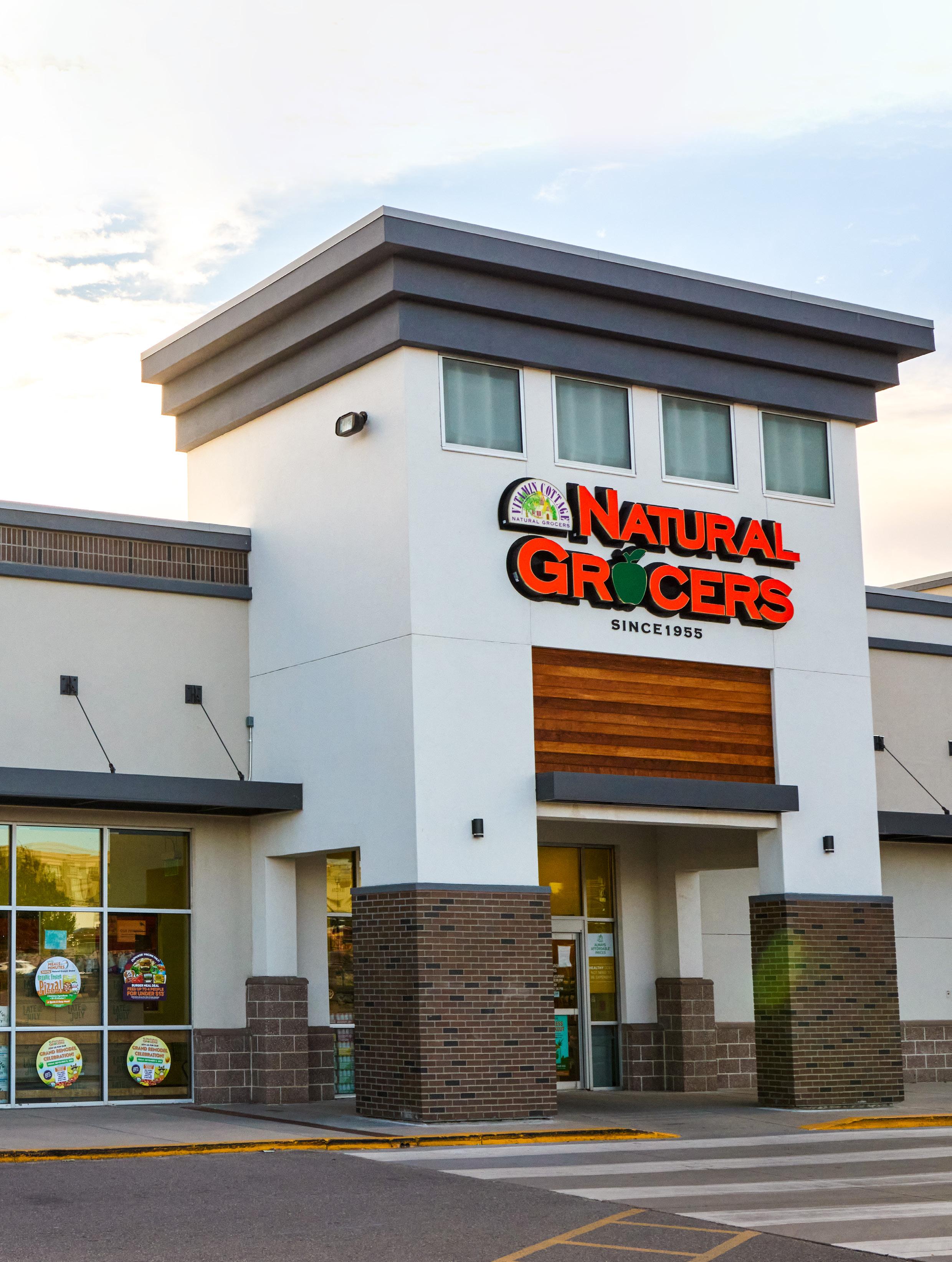

NOVEMBER 2025

Natural Grocers’ Continued Expansion Of Its Own Brands Reflects Company Values COVERAGE
STARTS PG. 6
PLMA PRESIDENT PEGGY DAVIES TALKS PRIVATE LABEL PG. 16











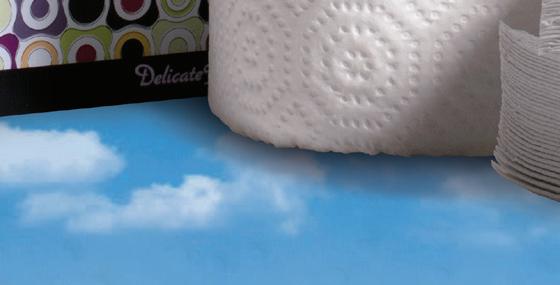















There is no limit to what we can do together with your label on our products. We have grown into one of the largest private label household paper manufacturers in the U.S.A. by customizing and packaging products exactly to your specs and delivering them how, when, and where you need them.
• Paper towels, bath tissue, napkins, and facial tissues.
• Flexible, customized manufacturing, packaging and displays to your specs.








• Full range of ultra, premium, FSC® Certified, 100% recycled, and traditional paper grades.
• Pre-packaged Azure® Ultra Premium, Daisy®, Delicate Touch®, and Earth One™ control brands for lower volume requirements.


















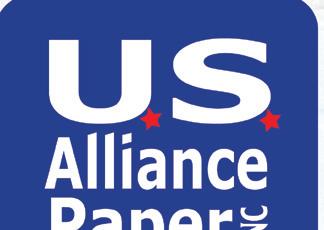



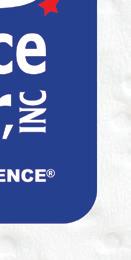

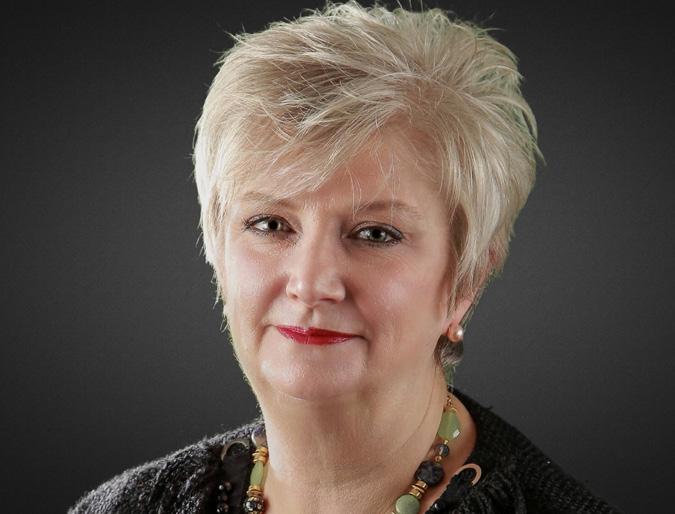
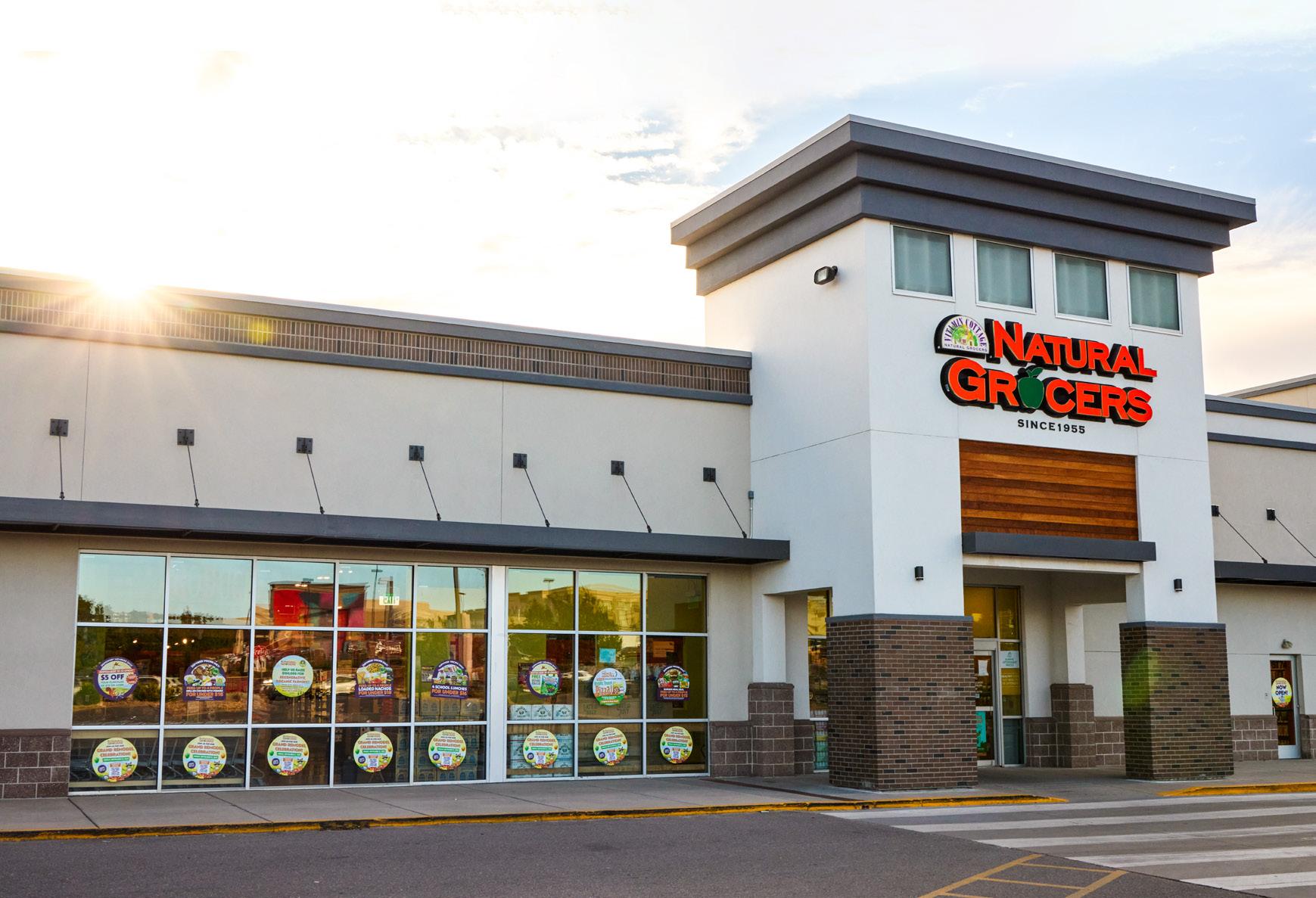
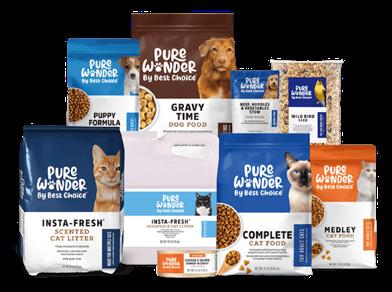

In recent years, the continued growth of private label products has provided Store Brands with much to write about, as retailers of all sizes have worked to expand their own brand assortments.
But the story behind this growth goes beyond dollars and cents. First, it’s been an evolution in how retailers view their private brands. For many, the long history of own brands has focused on product selections that provided budget-conscious shoppers with options at opening price points.
Today, retailers continue to sharpen their own brand product development efforts to improve what’s inside the packaging while also upgrading the exterior. Words such as “value” and “premiumization” have replaced “low price.” Over the past year, retailers such as Target, Kroger, and Market of Choice, among others, have used their own brands to bring unique, higher-quality products to market.
We’ve also seen retailers make greater investments in product packaging. From grocery stores to mass merchants and convenience stores, many have taken their designs to a new level. These upscale looks serve to catch the attention of busy in-store shoppers while also boosting consumer perceptions of store brand products.
The next step in the evolution of private label is proprietary products. Sure, own brand assortments on the shelves of most retailers still include many basic items, but today’s highly competitive retail landscape has led some retailers to take advantage of their store brands and create unique items.
Whether it’s Walmart’s bettergoods line or Target’s effort to create unique frozen food choices by working with James Beard Award-winning chefs, retailers are showing a desire to think beyond the traditional norms of private label. These products provide unique flavors and are also proprietary to the specific retailer.
There is also an opportunity for retailers to use their own brands seasonally, which creates in-and-out assortments and promotions around key selling seasons. We’ve seen grocers such as Trader Joe’s flood their stores with pumpkin-related products during the fall, and others have tapped into the fourth-quarter holiday season to carry limited-timeonly selections of sweets.
As we head into 2026, retailers have the opportunity to build on a strong foundation to meet the needs of shoppers who in recent years have shown greater trust in own brand products. Staying true to quality and value while bringing more imaginative thinking to the product development process will keep the momentum of the past several years going.

8550 W. Bryn Mawr Ave., Ste. 200 Chicago, IL 60631 773.992-4450 Fax 773.992.4455 www.storebrands.com
BRAND MANAGEMENT
Brand Director Eric Savitch 856-296-6357 | esavitch@ensembleiq.com
EDITORIAL
Associate Publisher/ Executive Editor Greg Sleter gsleter@ensembleiq.com
ADVERTISING SALES & BUSINESS
National Sales Manager Kristen Basil 631.902.0168 | kbasil@ensembleiq.com
DESIGN/PRODUCTION/MARKETING
Designer Nancy Peterman npeterman@ensembleiq.com
Production Manager Maria del Mar Rubio mrubio@rnsembleiq.com
SUBSCRIPTION SERVICES
List Rental mbriganti@anteriad.com
Subscription Questions contact@storebrands.com
Chief Executive Officer Jennifer Litterick
Chief Financial Officer Jane Volland
Chief People Officer Ann Jadown
Chief Operating Officer Derek Estey
The contents of this publication may not be reproduced in whole or in part without the consent of the publisher. The publisher is not responsible for product claims and representations.
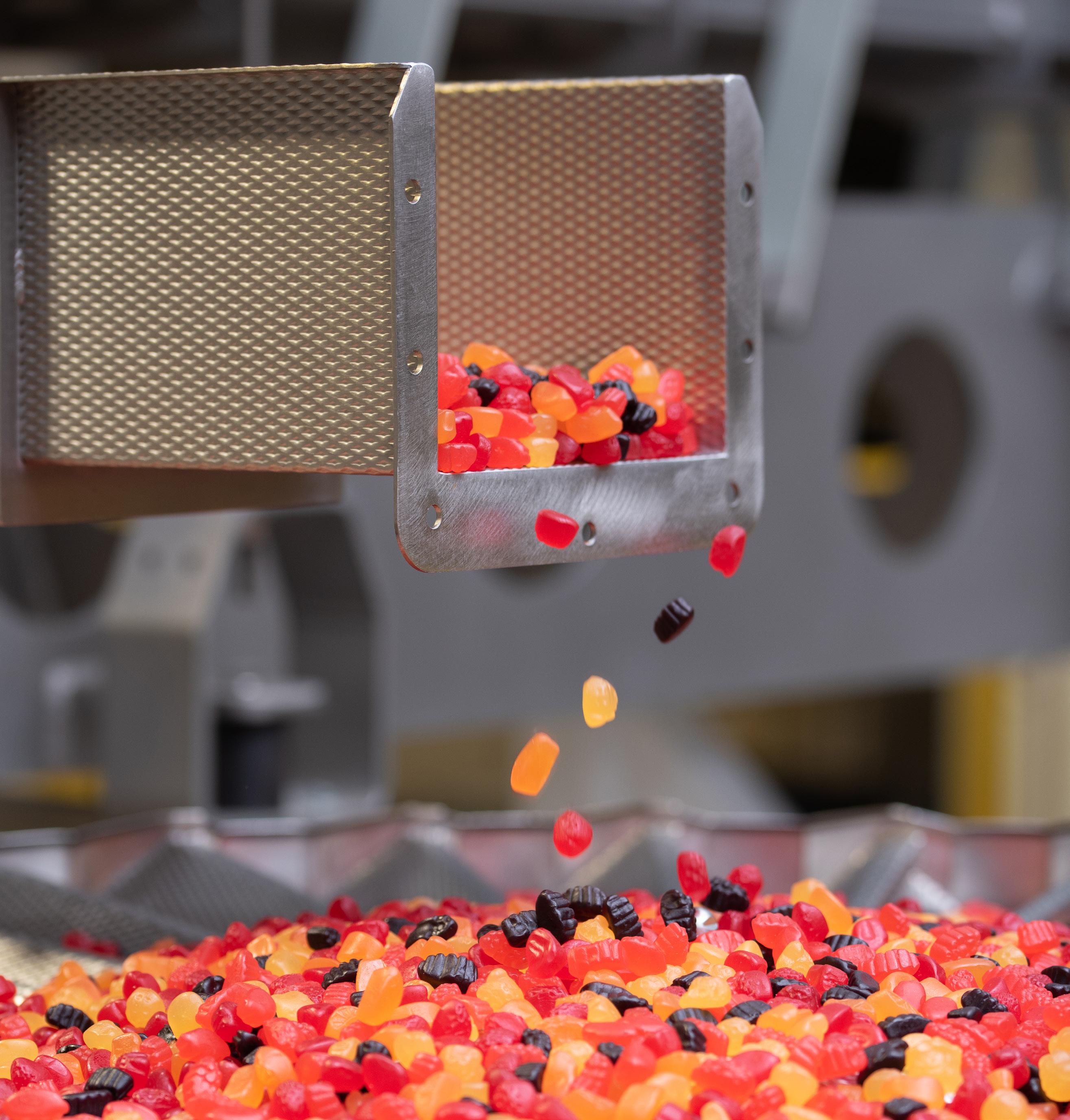
Co-packing is how smart brands scale. Sometimes confused with co-manufacturing, it actually means handing over your finished goods to a trusted partner who packages and distributes them. It cuts costs, clears bottlenecks, and gets products on shelves faster. Seasonal runs. Specialty packs. Custom requirements. With SPG, saying yes to co-packing means saying yes to growth.
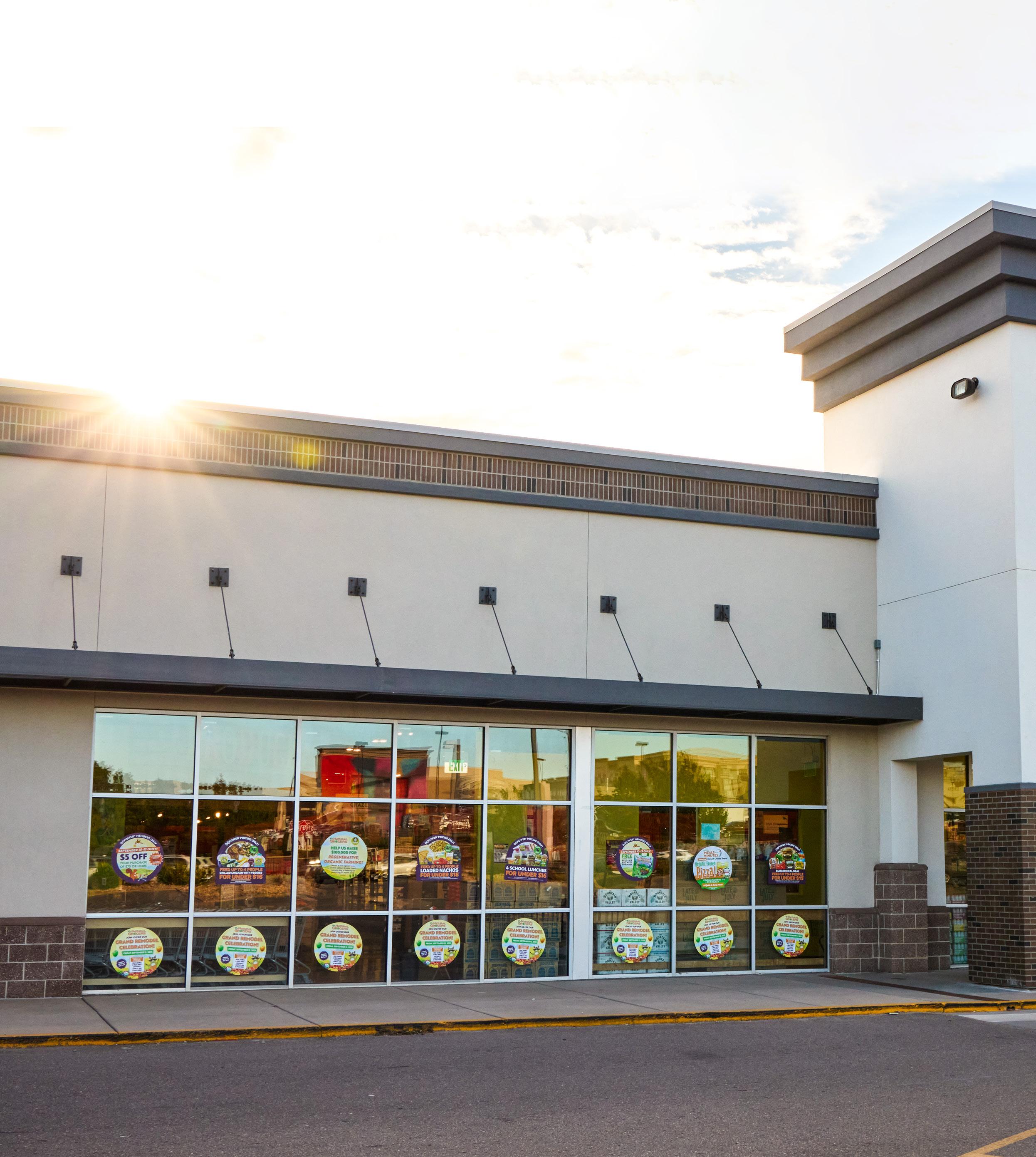
Natural Grocers’ Continued Expansion Of Its Own Brands Reflects Company Values / By Greg
Sleter
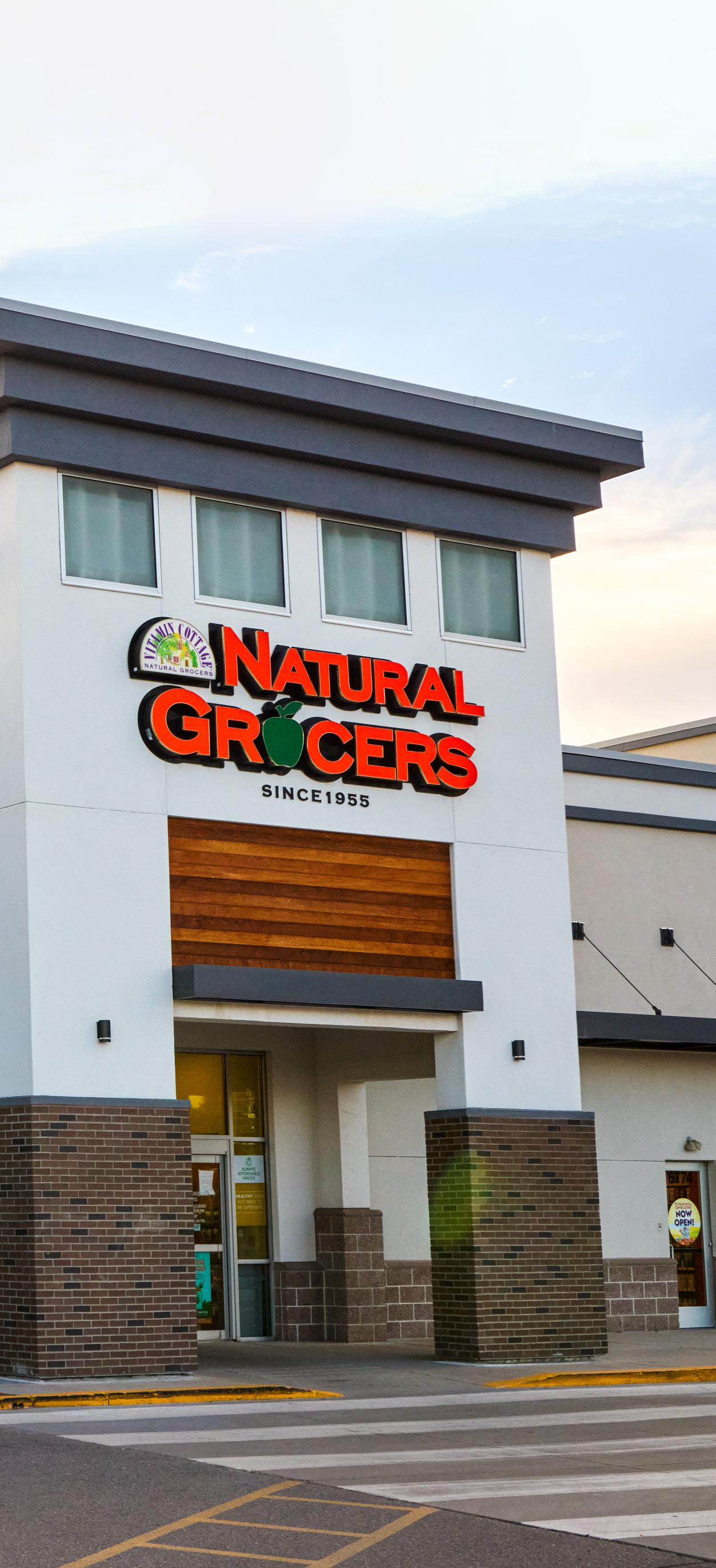
Just three days into 2025, Natural Grocers debuted an assortment of soups as the newest addition to its private label assortment. Over the following months, the grocer would continue to expand its mix of own brands across food and beverage, along with household cleaners and personal care items. It also used its brand to highlight four “unique flavors” as part of an April Fools’ gag.
But that moment of levity has not distracted Natural Grocers from its mission of offering shoppers quality products sold under the Natural Grocers brand. As retailers of all sizes continue to boost their private label product assortments, the Lakewood, Colorado-based grocer has done so while staying true to its mission of offering products that are “free from” a host of ingredients.
In May, for example, the grocer updated its list of ingredients prohibited from its assortment of household cleaners to more than 100. The new standard banned formaldehyde donors, phthalates, parabens, ethanolamines, glycol ethers, and quaternary ammonium compounds from products on its store shelves.
Natural Grocers’ continued expansion of its private label assortment, coupled with its commitment to its mission of offering shoppers healthy products, were key factors that led Store Brands to name the specialty grocer its 2025 Retailer of the Year.
Editor’s note: Store Brands worked with Natural Grocers’ communications team to gain greater insight into the grocer’s success with private label, along with future growth plans. Natural Grocers requested that the information be attributed to the company and not specific individuals within the organization.
STORE BRANDS: What does this recognition mean for Natural Grocers, and how does its private label strategy contribute to that success?
NATURAL GROCERS: Natural Grocers has prioritized quality products at affordable prices since Margaret and Phillip Isely founded the company in 1955. We have a legacy that demonstrates that a just, sustainable, and equitable food system is possible. Being recognized as Retailer of the Year for our Private Label
With our house brand, we choose products that represent not simply value, but our values; values that support small farmers, family businesses, and environmental stewardship, and have defined our family’s mission since 1955.”
— Natural Grocers
Strategy and Product Development is a direct reflection of our commitment to maintaining this legacy, with a special nod to our Natural Grocers Brand Products.
With our house brand, we choose products that represent not simply value, but our values; values that support small farmers, family businesses, and environmental stewardship, and have defined our family’s mission since 1955. When you see “hormone and antibiotic free,” “free range,” “pasture based,” and “nonGMO” on our labels, they mean exactly what you expect, no loopholes, no compromises.
Our private label products are popular with our customers, and we attribute this popularity to several things: quality and/or taste, affordability, thoughtful selection, and transparency.
SB: Natural Grocers has been consistently introducing new private label products this year. Can you walk us through the development process for a new private label item, from concept to shelf?
NG: We generally start with a target category or concept. Then we search for a vendor partner that meets our standards, aligns with our core values and can provide a high-quality product. From there, we go through a series of tastings, packaging evaluations, reformulations and logistics discussions. Our talented in-house
design team develops the label design, and we proceed to launch. Our private label manager applies strong project management techniques, and we continually evaluate timelines and efficiencies to improve the process.
SB: How does Natural Grocers ensure that its private label products meet its strict health and wellness standards, such as being organic or non-GMO?
NG: We hold our private label programs to the highest standards. All products undergo the same rigorous scrutiny as any branded product. Our dedicated standards committee provides guidance, and we are always exploring opportunities to bring healthy, affordable options to our shelves.
SB: What are the key motivating factors behind developing a new private label product? Is it primarily to fill a gap in the market, to offer a better value, or to differentiate from competitors?
NG: Our goal is to offer affordable, healthy products to our customers. New products may fill a gap in our assortment, offer exceptional value, or reflect our brand values. For example, our affordable Natural Grocers Brand organic eggs are a clear demonstration of quality and value that resonates with our customers.
SB: What role does customer feedback play in shaping Natural Grocers’ private label assortment? How does it use that input to guide new product development?
NG: Customer feedback helps us stay connected to what our customers want and need. It shows us which products or ingredients resonate, and which they might avoid. This insight guides our decisions as we expand and refine our private label assortment.
SB: Natural Grocers’ packaging and branding are unique. What is the philosophy behind its private label design, and how does it communicate the brand’s commitment to health and wellness?
NG: At Natural Grocers, our private label brand is rooted in the belief that high-quality, affordable products should be joyful, accessible and inspiring. The whimsical nature of our packaging reflects our commitment to making wellness approachable and fun, not intimidating. From playful illustrations to vibrant colors, every design element sparks curiosity and reinforces our core values of quality, transparency and sustainability. We want our customers to feel good not just about what’s inside the package, but about the experience of choosing products that support their daily lives and align with their values.
We hold our private label programs to the highest standards. All products undergo the same rigorous scrutiny as any branded product. Our dedicated standards committee provides guidance, and we are always exploring opportunities to bring healthy, affordable options to our shelves.”
— Natural Grocers
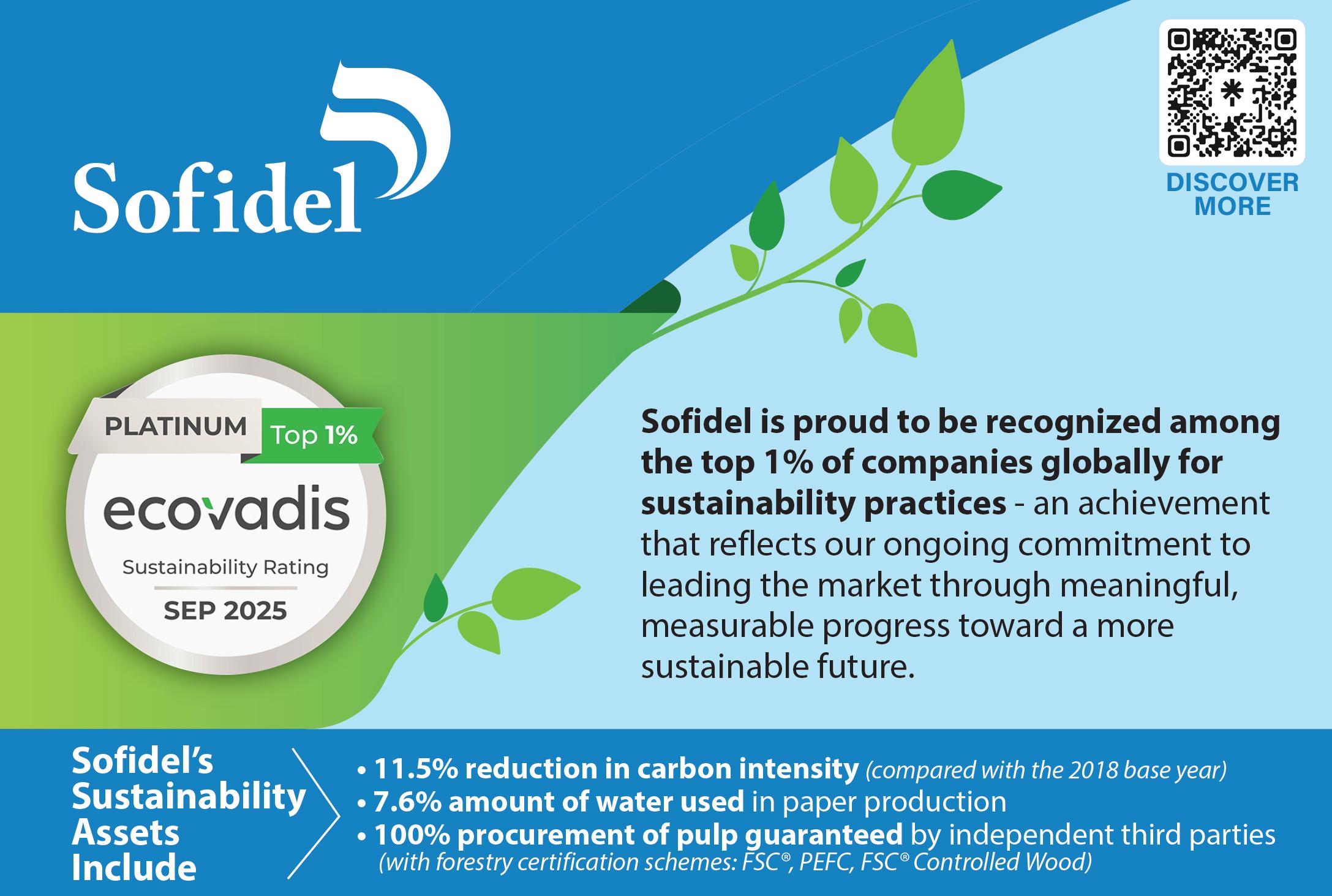
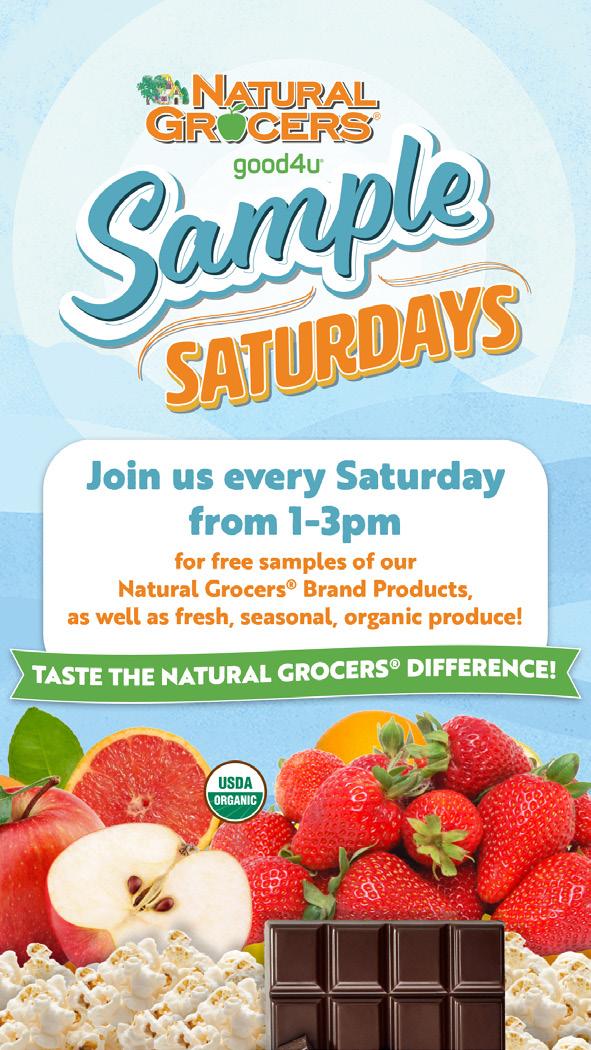
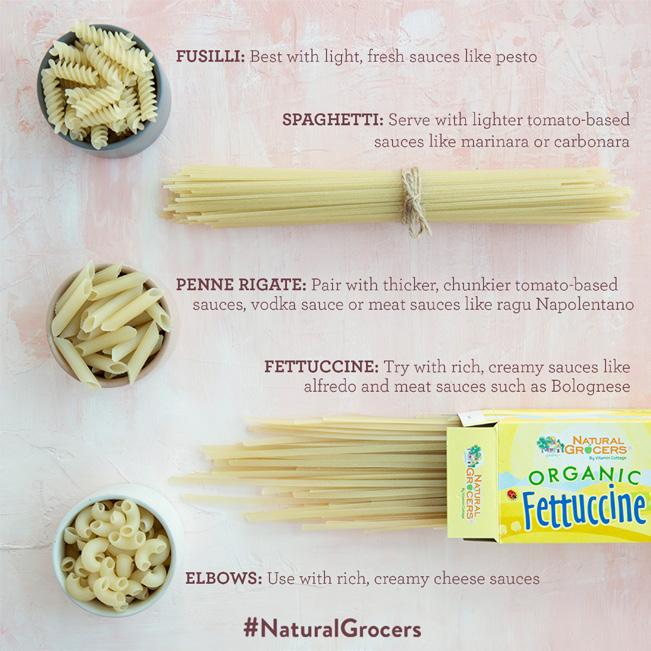
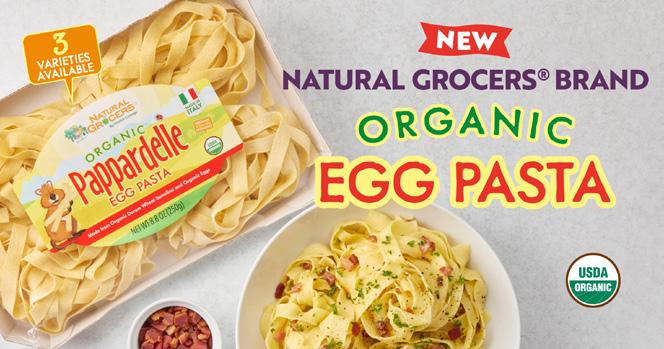
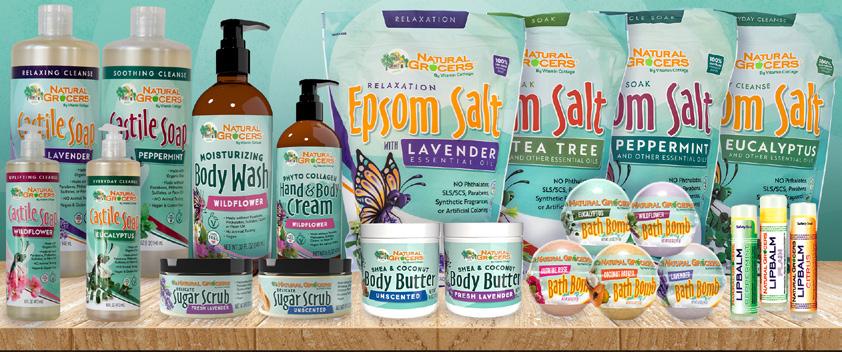
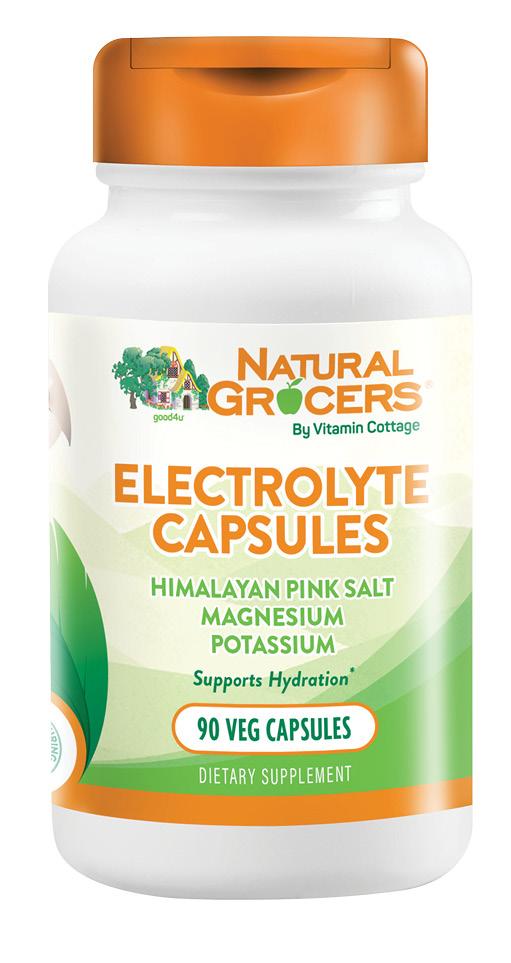
SB: How are the Natural Grocers’ private label products marketed to shoppers? Are there specific in-store displays, digital campaigns or other promotions that have been particularly effective?
NG: Our Natural Grocers Brand Products are positioned as premium-quality offerings at compelling prices and include a diverse assortment of products throughout the store. We use a variety of digital and print channels to launch and showcase our private label program. Many of our product launches are promoted with in-store signage, including posters, window clings and wobblers. Digitally, you’ll see these products prominently featured on our website, social media channels, communications to our {N}power members (Natural Grocers’ loyalty rewards program), our mobile app and in press releases. Beyond the initial launch, our private

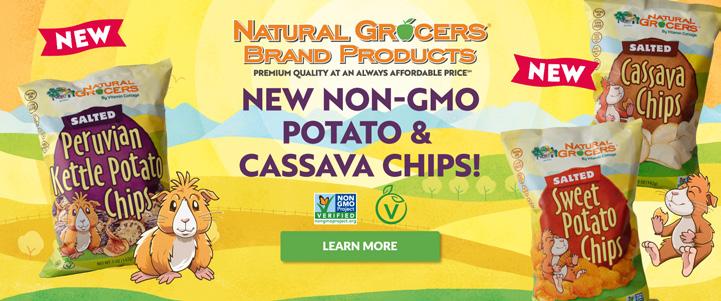
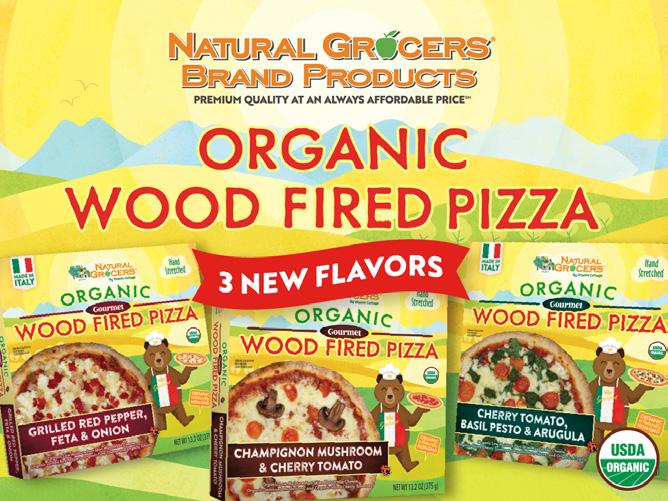
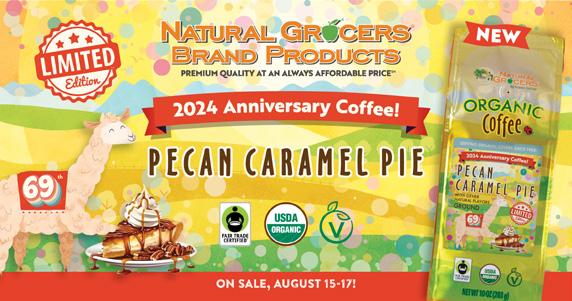
label products are featured in the stores on “Sample Saturdays,” woven into monthly recipes and in-store recipe cards, as well as in regular promotional campaigns.
One example of a long-standing campaign is our quarterly {N} power Meal Deals, where we combine branded and private label products to show customers easy, affordable meal ideas.
SB: How does Natural Grocers educate its customers about the value and quality of its private label products, especially when they may be accustomed to national brands?
NG: Before a major product launch, we educate our good4u Crew (Natural Grocers’ employees) on the product, including key features and the story behind it. When appropriate, we’ll offer samples




































to Crew members as well. This naturally empowers our Crew to be on-site brand ambassadors, with first-hand knowledge of the product, allowing them to confidently answer customer questions.
When it comes to customer education, we make it clear that choosing our private label doesn’t mean compromising on quality: it’s a choice that aligns with health, sustainability and support for small farms, all at our Always Affordable prices.
Educational content, like our “Meet Your Farmer” film series and clear explanations of terms such as “pasture-based” and “free range” in marketing materials, helps shoppers understand that our house brand is never “second best.” All Natural Grocers Brand Products meet strict quality guidelines and are made without synthetic colors, artificial flavors or preservatives.
It’s not just marketing, as we publish our grocery, dairy, bulk, body care, and supplement standards on our website for transparency. Shoppers can also explore our “Things We Won’t Carry and Why” section. Finally, we offer products that speak for themselves, rivaling national brands in quality, variety, flavor and ingredients. This is one more way we stay true to the values the Natural Grocers family has upheld since 1955.
SB: In today’s highly competitive retail environment, how does a strong private label assortment help
Natural Grocers stand out from larger retailers and bigbox stores?
NG: Our private label lets us bring our uncompromising standards for quality, transparency and affordability to life in a way big-box stores can’t. Beyond everyday essentials, we offer playful seasonal favorites, such as Pecan Pie Anniversary Blend Coffee, Pumpkin Spice Bath Bombs and Spiced Apple Dish Soap, that surprise and delight customers. These unique items create a shopping experience that keeps people coming back and makes our shelves truly stand out.
SB: What does the future hold for Natural Grocers’ private label business? Are there specific categories the company is looking to expand into, or new trends it’s hoping to capitalize on?
NG: Without revealing all our secrets, we are always seeking opportunities to introduce high-quality, affordable, and preferably organic products. We’re particularly excited about our growth in body care, dairy, and frozen foods. We pride ourselves on being nimble and responsive to a rapidly changing market.
Since its launch in 2016, the Natural Grocers Brand has expanded to more than 900 items, available exclusively at our stores. We offer an exceptional selection of private label supplements.






































































Our bulk section has been a staple and a customer favorite from the very beginning. Across food, household, pet, and body care, we currently have almost 300 active products. Recent additions include Organic Restaurant-Style Tortilla Chips, Organic Whole Milk Yogurt, and Organic Wellness Shots, with even more premium-quality, Always Affordable products coming soon.
SB: Beyond private label, what is the company’s overall store growth strategy? What factors does it consider when deciding on new locations for expansion?
NG: In fiscal year 2025, we opened two new stores and relocated or remodeled three stores. In fiscal year 2026, we plan to open six to eight new stores. We are very intentional when evaluating growth opportunities. We look for locations that align with our Five Founding Principles, making sure our presence truly benefits the community. We are also mindful of our environmental impact.
New builds and remodels incorporate sustainable features and energy-saving innovations, including non-toxic building materials and 100% LED lighting. New stores average 10,000 selling square feet, which supports operational sustainability and energy efficiency. The smaller footprint also enables us to profitably serve a wide range of communities, from rural to urban, while providing a convenient shopping experience and a high level of

customer service. We believe we have strong opportunities to accelerate store growth in both current and new markets. Employee welfare is another key factor. We focus on the engagement, development, and retention of our Crew members. We also prioritize helping them maintain a healthy, balanced life by offering free nutritional education, excellent benefits, and access to high-quality, affordable products. This deliberate approach to growth ensures we can uphold these commitments to our communities and to our Crew.
SB: Looking ahead, what is the long-term vision for Natural Grocers, both in terms of store count and its private label presence?
NG: We believe grocery stores play a pivotal role in the food system, which is essential to health and well-being. We strive to positively influence how food is grown, raised, and sold in this country. Our products, including Natural Grocers Brand Products, support community health and well-being. We aim to offer nutritionally sound, environmentally responsible products and prioritize vendors and farmers who are as passionate about human health, animal welfare, and the planet as we are. We will continue this path as we expand our store footprint and private label line.




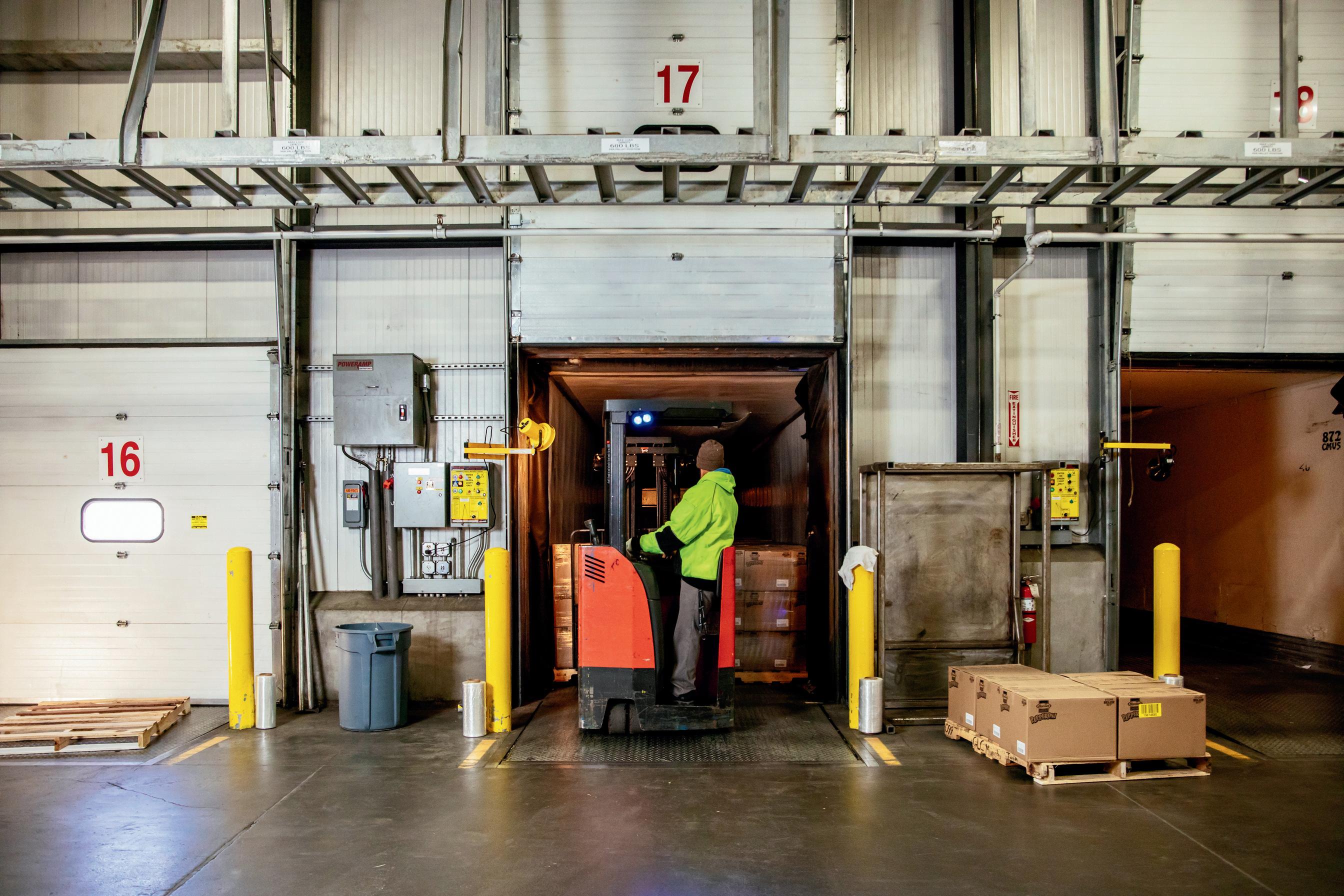

Today’s most forward-thinking companies are stepping up to tackle the challenges the food industry faces as it strives to provide to provide nutritious, safe and affordable products to all consumers — consumers who are not only interested in sustainability but also expect food stores and brands to share their values and show commitment to addressing these issues.1
La Doria, a southern Italy-based producer of private label products, is leading the way with sustainability initiatives that reach every corner of the company — from the Italian fields where its tomatoes are grown to the factories where its tomato-based products, ready-made sauces, pulses and dried pastas are processed and packaged.

Store Brands asked Diodato Ferraioli, La Doria’s Chief Commercial Officer, how the company is working to meet key sustainability goals.
Store Brands: What is driving La Doria’s on-going commitment to sustainability?
Diodato Ferraioli: La Doria celebrated its 70th birthday in 2024. We’ve always recognized that the land is our most important resource. It is the root and origin of our products. Three words help tell our sustainability story:
• Land. It is our duty is to care for the land so fruits it bears are safe and high-quality, and to prevent those products from being wasted along the production chain.
• Commitment. We must make sure working conditions are safe and responsible for everyone in the supply chain, mitigate the company’s environmental impact, and ensure long-term sustainability.
• Passion. We don’t stop innovating after we’ve achieved a goal. Our passion can be seen in our product innovation line that focuses on packaging, and our process innovation line that optimizes production and mitigates its environmental impact.
SB:What initiative is central to your efforts?
DF: Our commitment to fighting climate change is a key element. We know we can make a significant contribution in that area by transitioning to renewable energy sources. For example, 100% of our tomatoes are grown in Italy. Last year, we worked with the start-up company Evja to help our tomato farms optimize their management of crop nutrition, irrigation, and protection. We also invested in photovoltaic systems at our Parma facility.
SB: Have you been able to track results so far?
DF: Absolutely! To date, we have achieved a 47% savings in water conservation, a 67% reduction in pesticides, and a 33% reduction in insecticides from the Evja project. And we were able to purchase 100% of our electricity from renewable sources thanks to the photovoltaic systems.
In addition we have made a commitment to the SBTi (Science BaseTarget initiative) in terms of GHG (green house gases) emissions. For Near-Term Targets, La Doria Group commits to reduce absolute scope 1 and 2 GHG emissions 46.2% by 2031 from a 2021 base year and scope 3 GHG emissions 32.3% within the same timeframe.
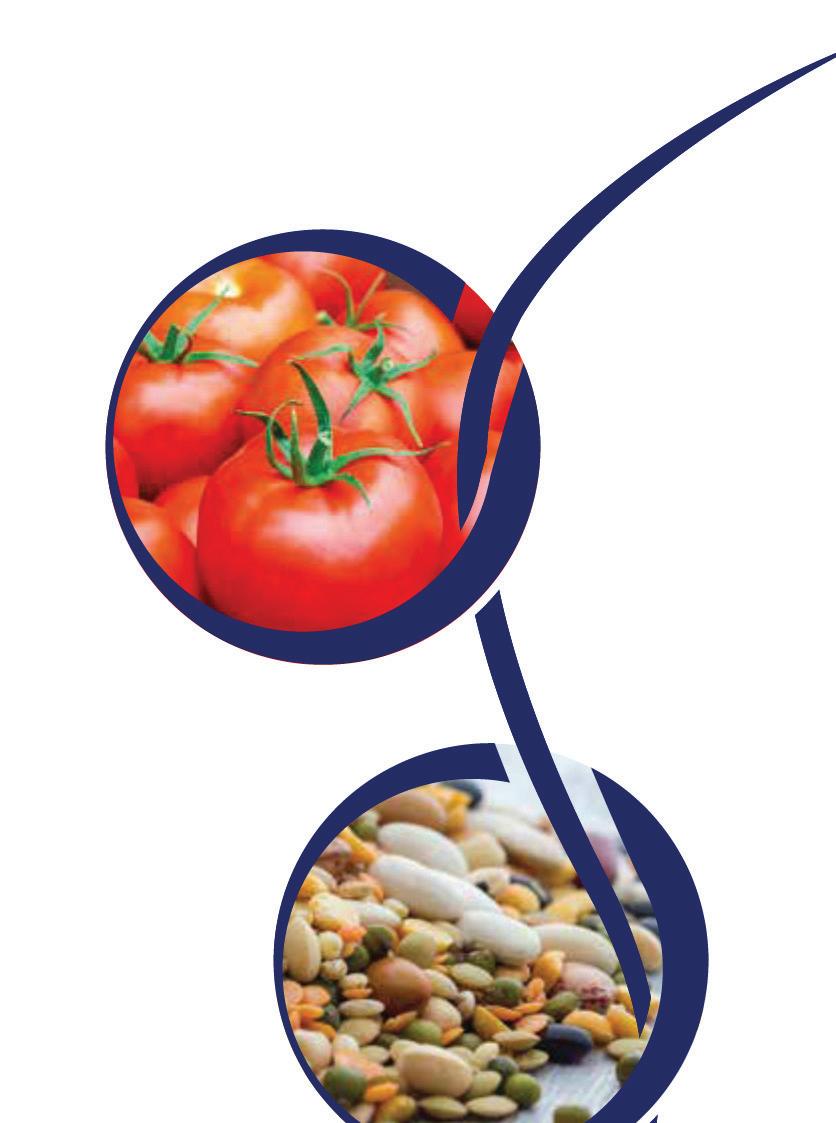
SB: Let’s talk about sustainability throughout the supply chain. What efforts are you making there?
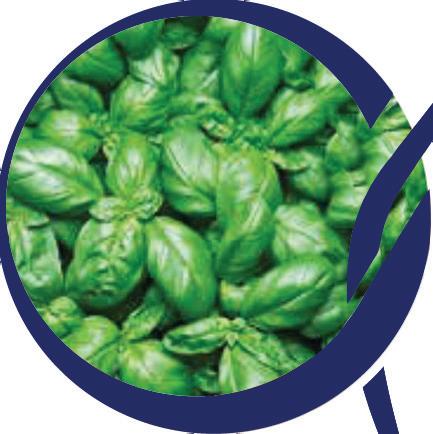
DF: We are focused on sustainable packaging and control to ensure full traceability. All of our products are 100% traceable from field to shelf, which means retailers and their customers know exactly where our products and the raw materials used to produce them come from. It is transparency customers can trust!

SB: Finally, why should grocery retailers care about offering sustainable products?
DF: Because that is what shoppers are looking for! According to recent data, 72% of consumers agree they would like companies’ sustainable practices to be more visible2, 68% see large companies as highly responsible for making the world more sustainable2, and 80% say they are willing to pay more for sustainable produced or sourced goods3. La Doria will continue to provide our retail partners with those products, always looking to the future with an innovative, sustainable growth strategy in mind.
1FMI – The Food Industry Association, “Sustainability in the Food Industry 2023: Consumer Perspectives and Industry Strategies” 2The Hartman Group, “Sustainability 2025: Do Consumers Care?”
3PwC, “2024 Voice of the Consumer Survey”
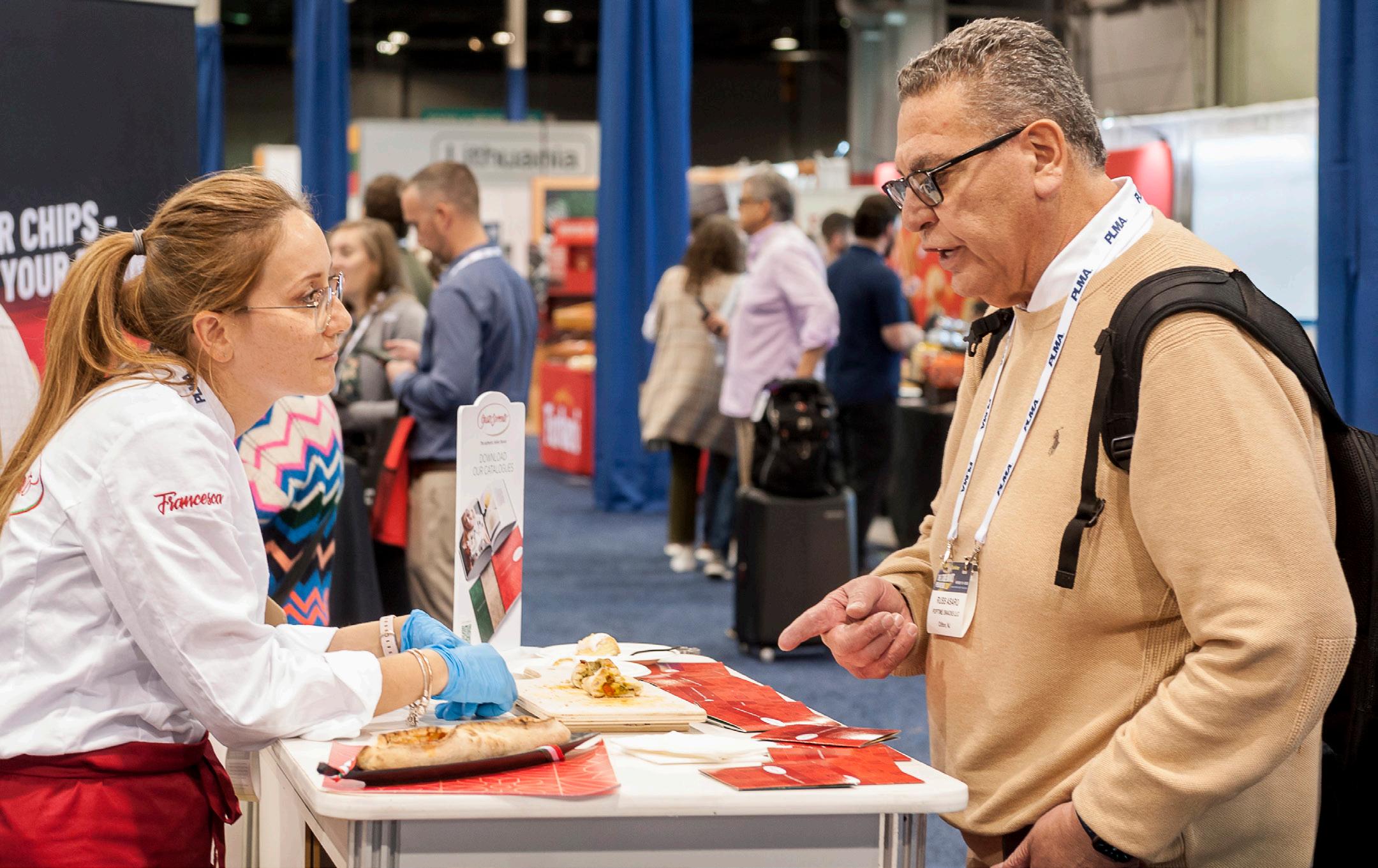
PLMA PRESIDENT PEGGY DAVIES DISCUSSES THE INDUSTRY’S STRENGTHS AND WHAT’S IN THE WORKS AT THE ASSOCIATION.
By Greg Sleter
It’s been another strong year across private label, as a variety of factors are combining to continue driving sales of retail own brands.
Where price for many years was the main motivator behind consumers turning to store brands, today this is no longer the case. Many retailers continue to build their current slate of private label assortments with a focus on offering shoppers more value and higher quality products.
The evolution of private label is also seen in how a growing number of retailers are using their own brand assortments as points of differentiation from the competition. No longer is the product development effort focused solely on creating national
brand equivalents; the effort today is on creating uniqueness that separates products from national brands while also providing shoppers with something they can’t find anywhere else.
As sales have grown across private label, so too has the annual Private Label Manufacturers Association show in Chicago. The November event at the Donald E. Stephens Convention Center remains a vital hub for retailers and suppliers to meet, discuss trends, and plan for the coming year and beyond.
Ahead of this year’s show, Store Brands spoke with Peggy Davies, president of PLMA. She discussed continued growth opportunities across private label, the industry’s continued evolution, and new initiatives happening at PLMA.
STORE BRANDS: From your point of view, what is the current status of the private label industry as we approach PLMA’s annual November trade show?
PEGGY DAVIES: I think we can sum it up in a couple of words. We continue strong, and market share of total retail sales is now 24%. In the past, we would gain market share and then slip back. While we’re not gaining a whole lot this year, we are definitely holding our own, and national brands are struggling a bit. The strength of private label is driven by consumer demand for value and quality, and retailers continue to invest in product innovation. Store brands are increasingly credible, and that doesn’t matter what generation you are or where you’re shopping. And, I can’t discount the influence of social media. They have made private label cool, and they’re not necessarily talking about center store staples. Overall, I think the industry remains mission-focused to expand market share and meet evolving consumer preferences where they shop.
SB: In recent years, there have been specific factors, such as the pandemic or inflation, that have helped drive sales of private label products. What factors are helping keep the momentum for private label moving forward?
PD: Quality is something that is no longer taken for granted within private label. That is what is helping fuel growth. Retailers continue to elevate their innovation platforms, and packaging has changed quite a bit. In addition, retailers are also more agile and make greater use of shopping insights to respond to trends quickly and stay aligned with consumer values. Value and taste remain the biggest drivers, and (PLMA) has seen that in our Salute To Excellence nominations from retailers. This year, we received more than 750 nominated products from retailers. That is a very big number. We also continue to see a shift by retailers from being price-focused only to now highlighting value, quality, choice, and convenience.
SB: The shift away from focusing on price only to being focused more on quality and value is a major talking point across private label.
PD: We are definitely seeing that. Retailers today are now brand builders. It’s moved from just another item on the shelf to competing with national brands and now setting the pace. There is certainly trend-forward innovation happening, whether it’s plant-based, wellness, or global flavors; there’s a myriad of things happening on these fronts, and retailers are working to create products that are exclusive. There is also the impact of influencers and social media that are highlighting retail exclusives. This seems to be going a long way to helping private label hold on to its market share.
SB: As product quality has improved, we’ve also seen retailers raise the bar when it comes to packaging as well.
PD: Packaging design is one of the components our Salute To Excellence judges consider. It has changed their perception as they review a product, and the messaging also allows them to better understand the item as well. The improvements in packaging also help the consumer make their decisions at the shelf.

Retailers today are now brand builders. It’s moved from just another item on the shelf to competing with national brands and now setting the pace. There is certainly trend-forward innovation happening, whether it’s plant-based, wellness, or global flavors; there’s a myriad of things happening on these fronts, and retailers are working to create products that are exclusive.”
— Peggy Davies, president of PLMA
SB: The new packaging designs have also helped diminish the term “white goods.”
PD: I think we’ve finally moved past it, despite the best efforts by some in the media. I’ve written several letters asking members of the media not to use that term.
SB: The theme of this year’s PLMA Private Label Show in Chicago is Store Brands Marketplace. What is the significance of that theme to those who will be in attendance?
PD: We had used Store Brand Phenomenon for the past few years, and it was time to change it. This year, for the first time, we had staff submit their thoughts about what they thought the theme should be. This is a homegrown effort from our staff, and we decided to use Store Brands Marketplace. The show continues to be a place for
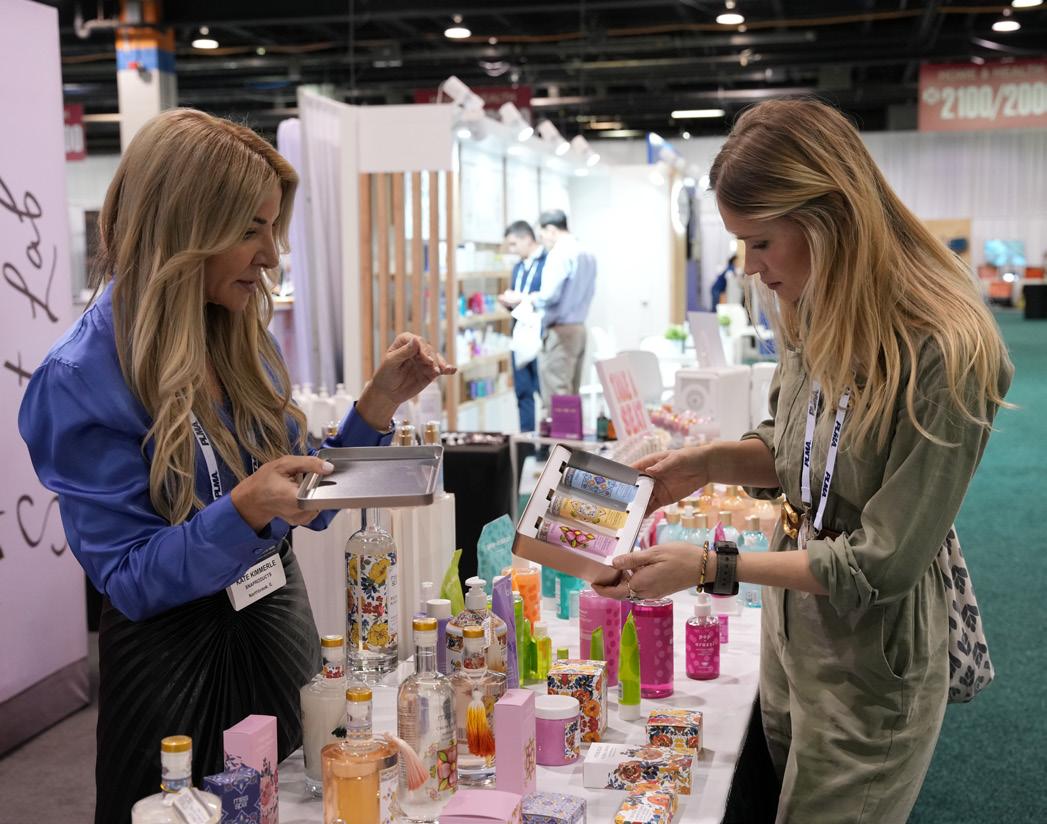

engaging in commerce, discovering new products, new packaging ideas, and learning from industry experts. We have a strong lineup of speakers for Sunday at the show and are thrilled to have Joel Rampoldt, CEO of Lidl US, as our Monday morning keynote speaker.
SB: Will there be any noteworthy changes to this year’s show?
PD: We are making some changes this year because we are at maximum capacity with exhibit space. We are moving the registration area up to the second floor of the convention center, and there will also be a satellite registration area where attendees can use their QR codes. You’ll also be able to get your badge at the Hyatt Regency O’Hare right next to the convention center.
On the show floor, we will again this year have a section focused on spirits, which we had last year. We are also adding a self-care and wellness section, which will feature some products we have not traditionally seen on the show floor, such as bath bombs and home spa items.
SB: Does PLMA get a great deal of feedback from show attendees about what they would like to see at the annual Chicago show?
PD: I wish we would get more. We have thousands of exhibitors and booths, and we do a good job of promoting what is at the show. But we would love more feedback, as it would help us scope out some additional exhibitors.
SB: Looking beyond the Chicago show, January will mark the second annual Store Brands Month. What were some things that were learned from this past January’s event that are being used for 2026?
PD: We were really pleased with Store Brands Month this past January, as we hit the ground running to launch the event. We refreshed our toolkit, put in some social media templates, and did some short videos and scripts, while also providing some examples of how retailers successfully promoted their brands. In 2026, we will also be working with a couple of influencers, who we haven’t announced yet, but will help promote Store Brands Month on social media. We will also be sending a press box to media and influencers that will include some Salute To Excellence products and other items to gain some additional exposure. I feel as if we’re in good shape for Store Brands Month 2026, and we’re already thinking about 2027.
SB: From a PLMA perspective, what should be watching from the association?
PD: Over the summer, we worked on a 3 to 5 year plan that will now be a 2 to 4 year plan, but through 2029, when the association is 50 years old. We have a really great base to build on, and while I can’t share anything at the moment, we have started planning for 2026 to 2029. I can say that we are working to put our plan in place to change something for the better, but not change what isn’t broken. We remain focused on how to deliver the right things to the right people at the right time as we come upon this really big milestone of 50 years.

Everything we do is a root in the rich soil that takes strong relationships, knowledge, and timing to do it right.
Seneca’s high quality produce is sourced from American farms—family farmers we have done business with for many years, and in some cases generations.
We have spent over 75 years working hard to become one of the most highly integrated fruit and vegetable processing companies in the US. We provide families with a wide range of nutritious fruit and vegetable products that are safe, satisfying and sustainable.
Over 65 offerings of shelf-stable and frozen private label products from one companySeneca Foods


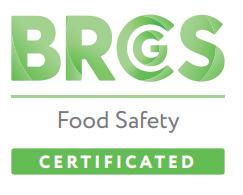





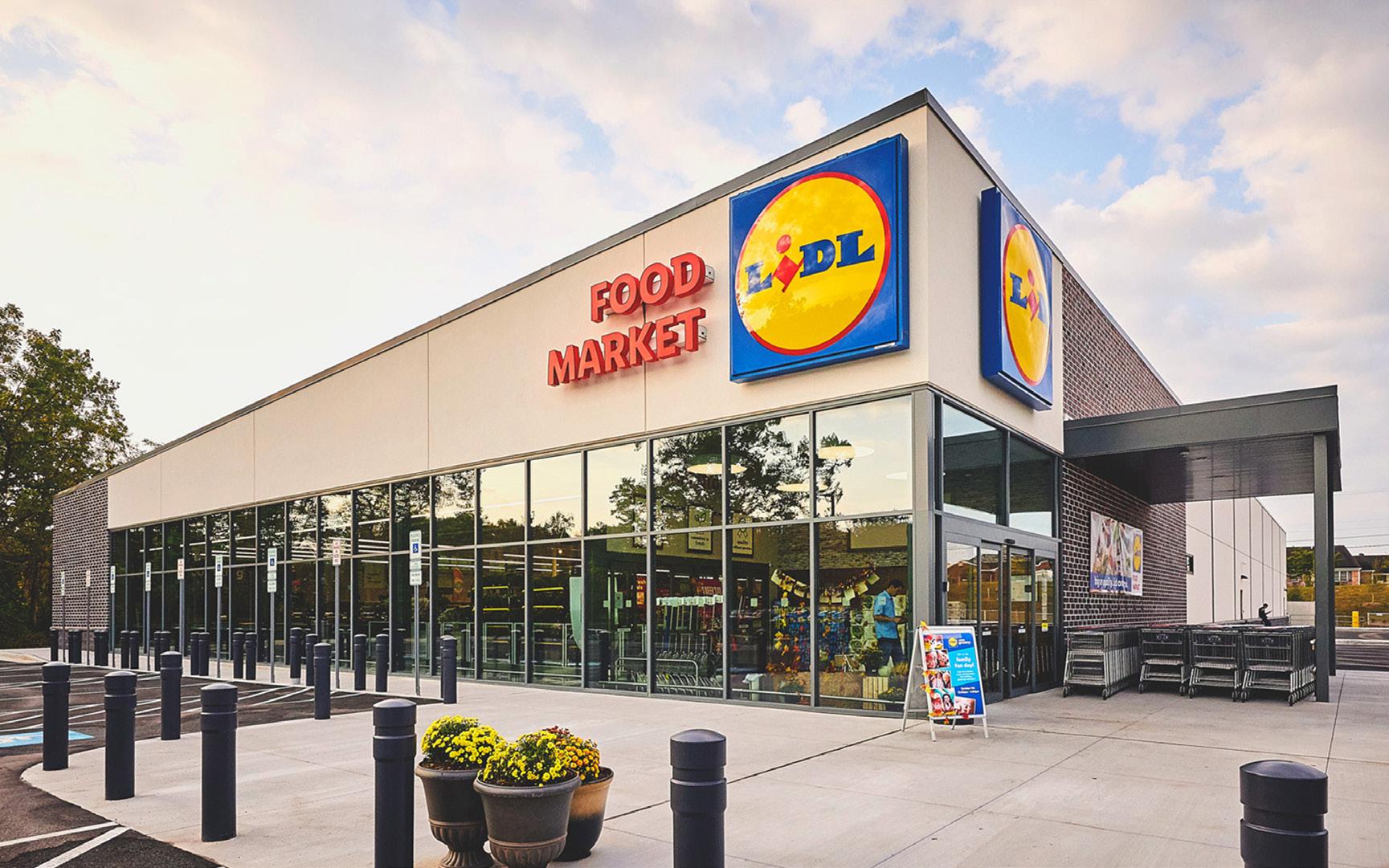
JOEL RAMPOLDT WILL SHARE INSIGHTS ON THE GROCER’S LATEST EFFORTS TO EXPAND ITS DOMESTIC PRESENCE
By Greg Sleter
Lidl US CEO Joel Rampoldt will deliver the keynote address at PLMA’s 2025 Private Label Trade Show this November in Chicago.
The U.S. division of Lidl was established in 2015 and is headquartered in Arlington, Virginia. It operates more than 190 stores on the East Coast. About 80% of its products are private label. Lidl, the parent company of Lidl US, operates more than 12,000 stores in 31 countries and is part of the Schwarz Group, the world’s third-largest retailer.
“I’m honored to get the chance to speak to our suppliers at this year’s PLMA Trade Show,” Rampoldt said. “Here at Lidl US, we value our relationships with our suppliers tremendously, and we’re
excited to grow with our suppliers as we expand in the U.S.” Rampoldt joined Lidl US as CEO in 2023. Previously, he was a partner and managing director at AlixPartners, where he specialized in improving sales and profitability for retail clients through strategies focused on pricing, promotions and operational efficiency.
“We are extremely pleased to welcome Joel as our keynote speaker,” said Peggy Davies, president of PLMA. “He is an accomplished and influential retail industry executive who leads a chain that is clearly a growing force in the U.S. market, much as it is in Europe.”
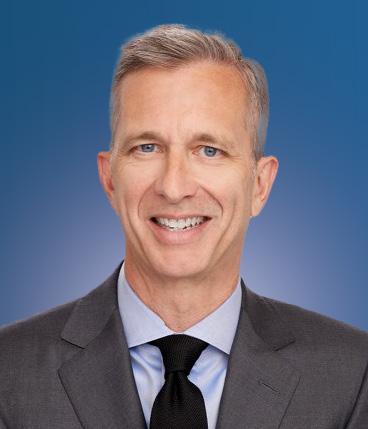
Rampoldt will speak at the 8 a.m. keynote breakfast on Monday, Nov. 17, at the Hyatt Regency O’Hare, which is adjacent to the Donald E. Stephens Convention Center, the site of PLMA’s 2025 Private Label Trade Show.
Rampoldt, CEO of Lidl US since September 2023, replaced then-CEO Michal Lagunionek. During his two years at the helm, Lidl has revived its store expansion plans and opened stores throughout its East Coast base.
Known for its broad selection of private label products, Lidl has had a busy 2025 as the company has opened or announced new stores in New York, New Jersey, Delaware, Virginia, Maryland and Georgia. The company now operates more than 190 stores in the U.S.
In a 2024 interview with Progressive Grocer, a Store Brands sister publication, Rampoldt said Lidl uses a three-step process when identifying sites for store expansion. This includes choosing the markets the grocer will focus on, identifying potential Lidl customers and assessing competitive intensity.
“We are very happy to be right up on top of our competition,” he said. “In fact, we actually like it better, because we opened a store that has really strong competition, very close by. They draw customers in, and we benefit from that.”
Lidl this year also updated its promotional efforts, which include the shift of its Midl of Lidl promotions from Wednesday to Monday. According to the company, products featured as part of the weekly specials, which include household and gardening products, will continually change, with the mainstay being Lidl’s private label brands such as Parkside and Crivit.
Store Brands Month is an annual, nationwide collaboration of retailers, wholesalers and private label suppliers promoting store brand products to American consumers.
The month-long campaign focuses on increasing consumer attention to the myriad positive attributes of store brands -- quality, value, uniqueness and innovation -- across all food and nonfood categories in brick and mortar and online formats.
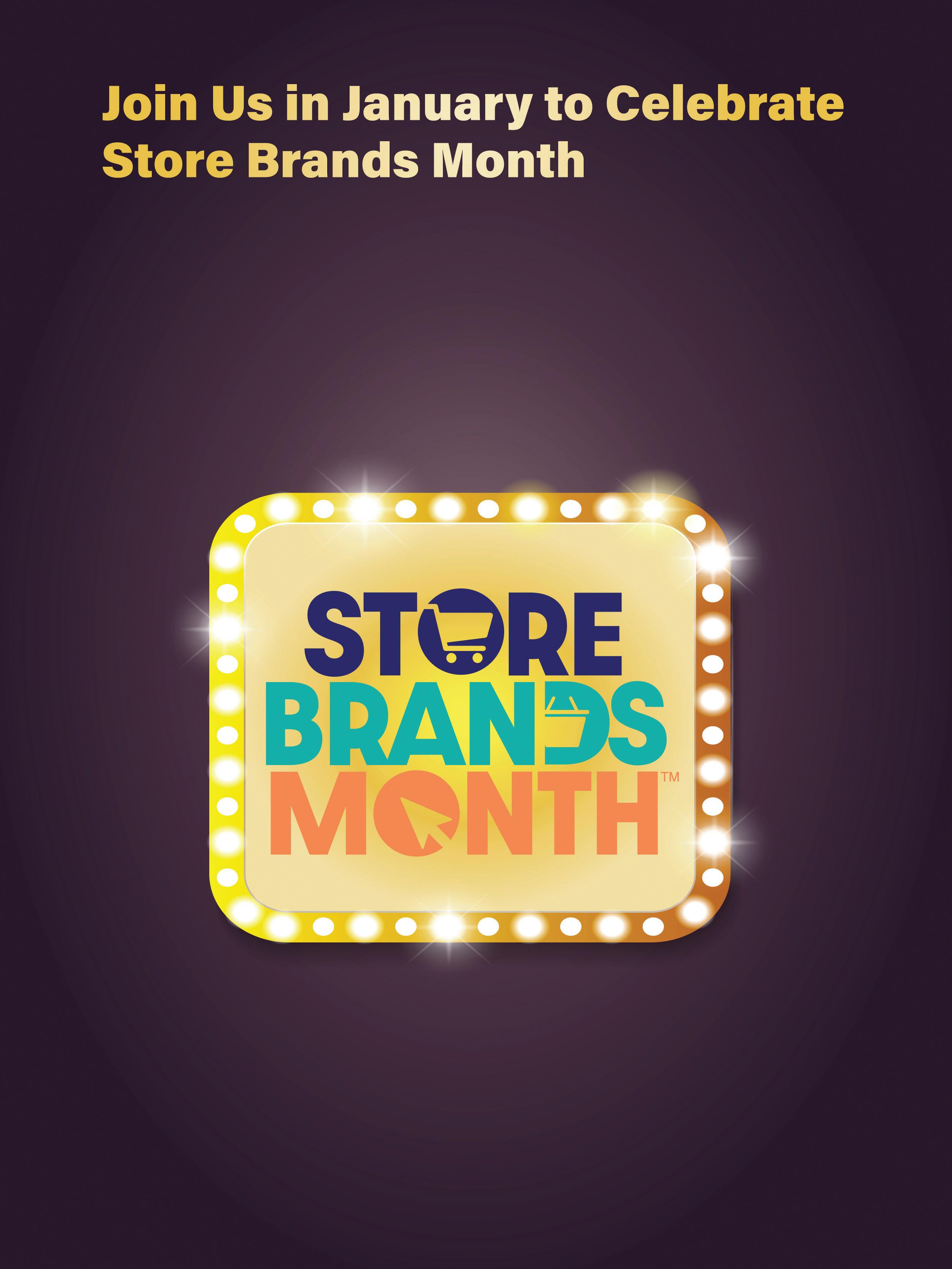
For more information on how you can be part of this campaign visit storebrandsmonth.com.



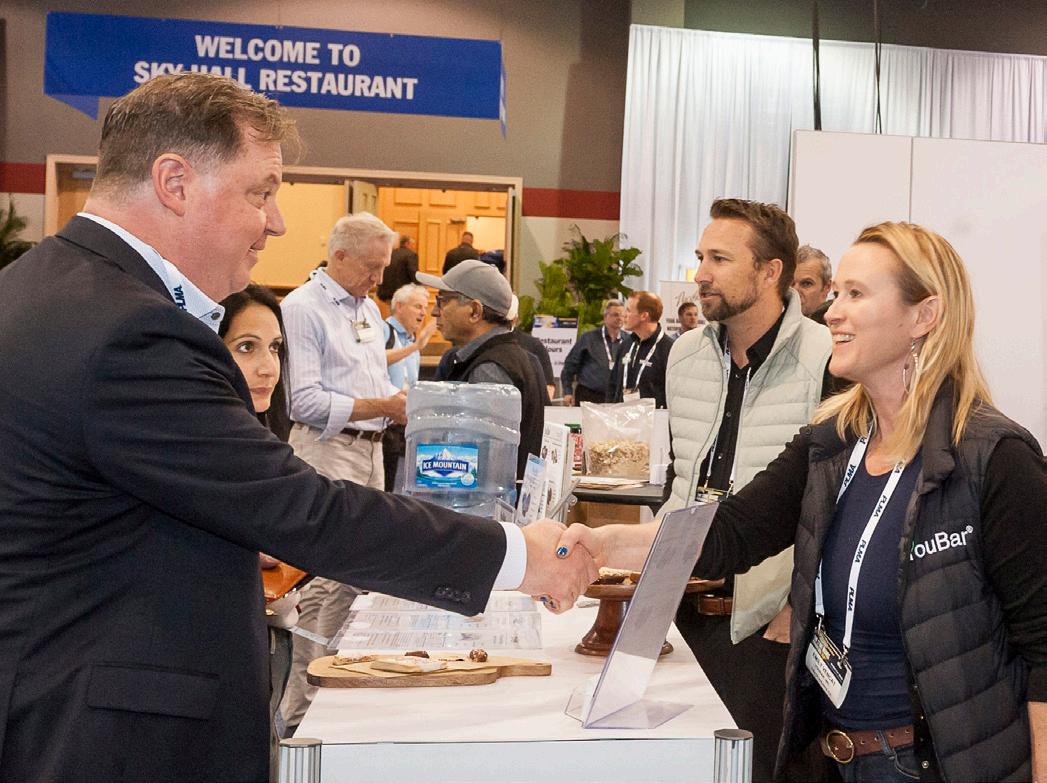
The Private Label Manufacturers Association will open its annual Private Label Trade Show in Chicago with a seminar series. The sessions will kick off on Sunday, Nov. 16, at 2 p.m. at the Hyatt Regency O’Hare.
Innovation and Trends in Private Label
Neil Saunders, managing director of Retail GlobalData, will explore the trends and dynamics of private labels in the U.S. and globally. His presentation will look at why private label innovation is critical for retailers, the consumer trends that retailers can innovate around and the best practices for private label innovation and development. Data, consumer research and case studies will be incorporated to bring key points to life.
As managing director of GlobalData’s U.S. retail and consumer division, he oversees the development of the company’s proposition and its research output. He also works with major retail clients worldwide to help them understand the retail, shopper and market landscapes, advising them on how to develop, evolve and implement business strategies.
Key Principles for Private Brand Excellence
Rachel Dalton, head of Retail Insights North America with Kantar, will explore the key strategies that define private label growth, how retailers fuel continued momentum and the role of private
label brands in the future of commerce. Her presentation comes at a time when private label expansion continues to be a strategic priority for retailers in the U.S. and abroad. Shopper trust in their preferred retailers creates a halo effect on those retailers’ private brand assortments, encouraging shoppers to purchase a wider range of categories.
In her role at Kantar, Dalton focuses on omnichannel acceleration and growing commerce platforms across all channels. She leads a team of subject-matter experts that deliver industry-leading retail thought leadership. Dalton is a retail expert and has published extensively for Kantar Retail IQ, a syndicated subscriptionbased content platform.
Break the Silos and Beyond the Spreadsheet: Unifying Inventory and Production Planning
Inventory and production planning are often siloed, yet they are deeply linked. Relying on spreadsheets and tribal knowledge limits visibility and hinders performance. Led by Joe Puglia, business technology and operations consulting principal with Plante Moran, PLLC, the session explores how combining disciplined strategies with ERP functionality enables real-time collaboration and better decision-making.
Puglia will cover inventory classification, level setting and planning methods based on item-level metrics. Attendees will learn how inaccurate lead times distort planning and how to capture realistic ones. The seminar will also address shared inputs between planning and operations such as production line structure, equipment run rates, crew sizes and changeover sequencing.
Puglia has more than 35 years of manufacturing and supply chain experience in the CPG industry, with 15 of those years as an executive-level leader. He has led or been a part of more than 15 business system implementations in organizations ranging from small family-owned enterprises to Fortune 500 firms.
Behind the Brand: The Critical Role of Private Label Manufacturers in the Convergence of Health, Beauty and Wellness
In today’s beauty, health and wellness landscape, consumers are seeking more than results and are buying into experiences, values and lifestyles. Categories such as skincare and supplements now form a unified ecosystem of well-being. At the center of this shift are private label and contract manufacturers, evolving from behind-the-scenes players to strategic brand builders.
Members taking part in this panel discussion will explore how these partners drive innovation, shape consumer experience and enable brands to thrive in a market where agility, authenticity and collaboration are key to success.
• Moderator: Mitchell Collens, director with AlixPartners
• Panelists: Sara Fellows, senior director of social media with mdg; Kristin Hornberger, executive vice president and practice leader, Wellness, Beauty and Homecare, with Circana; Harrison Pappas, CEO with Arizona Nutritional Supplements; and Daniel Sasu, commercial leader, Private Label, Distribution and Inside Sales, with Ingredion Incorporated.
All Under One Roof: Commerce, Concepts, Connections
• Tens of thousands of food and nonfood products
• 1,900 exhibitors
• 3,100 booths
• 65 countries
• 15,000 attendees













By Greg Sleter
Developing private label products is nothing new for the nation’s largest grocery cooperatives, but their task has grown in size and importance in recent years as more consumers turn to store brands as quality products that offer money-saving solutions.
From a consumer standpoint, the role of cooperatives is largely unknown. But to regional grocers, the co-ops are vital to staying competitive with the likes of Amazon, Walmart, Costco, and Kroger, all of which continue to expand their respective private label assortments. Companies such as Associated Wholesale Grocers, Topco Associates, and Wakefern Food Corp. provide smaller grocers access to selections of own brand products that they otherwise may not be able to offer their shoppers.
“The scale component that Topco offers its members has become even more critical for retailers and wholesalers,” says Randy Skoda, president and CEO of Itasca, Ill.-based Topco. “With consolidation on the retail side, some retailers have gotten bigger and bigger, and this makes it more difficult for the regionals and independents to compete. Without scale, [retailers] are at a pricing disadvantage, and we have seen our members embrace Topco and the collective more than they ever have.”
The ability to bring together multiple retailers and offer scale that’s more in line with larger national chains helps overcome the higher minimum-order quantities that a growing number of product suppliers are seeking, according to Emily Detwiler, VP of AWG Brands with Kansas City, Kan.-based Associated Wholesale Grocers.
“The role of the co-op has become even more important, as we can put together strong private brand programs for independent grocers and help overcome the increased minimums set by suppliers,” Detwiler says. “This is also important now as we work to deal with tighter supplies and tariffs. The ability for an independent grocer to navigate those waters on their own is next to impossible.”
Pamela Ofri, director of product development and operations, Own Brands at Keasbey, N.J.-based Wakefern, notes that the coop’s collective purchasing power allows the company to develop and source high-quality private label products at competitive price points. This, along with strong vendor relationships, gives Wakefern greater control over product details and quality standards, as well as the opportunity to customize products to better suit its members and market needs.
“When product sales volumes increase, we can negotiate even
With consolidation on the retail side, some retailers have gotten bigger and bigger, and this makes it more difficult for the regionals and independents to compete. Without scale, (retailers) are at a pricing disadvantage.”
— Randy Skoda, Topco

better terms with our suppliers,” Ofri says. “This often means we can pass those savings along to consumers by offering more affordable, high-quality products. It’s a win-win cycle that helps us grow and better serve our communities.”
Strong vendor relationships, coupled with the scale offered by the co-ops, can also provide solutions to potential problems. Skoda recalls a challenge that Topco was presented with by its longtime frozen pizza supplier that was about to end a 50-year relationship over the issue of manufacturing efficiency.
“If a supplier is stopping their production lines every five minutes to switch out another label, they aren’t running very efficiently, and many [vendors] will no longer do this,” he notes. “Our supplier told us we weren’t efficient enough and that he needed his machines to run for hours and not minutes. But if we could get the product under one brand, the supplier told us we would be his favorite customer.” Topco’s development of its Crav’n Flavor brand was the solution. Today, the nearly $200 million brand is found on frozen pizza, along with several other products, including frozen appetizers, frozen entrées, cookie dough, cookies, crackers, and salty snacks.
“With Crav’n Flavor, we now have innovation and access to other product categories beyond frozen pizza,” Skoda says. “It











We believe every project we work on is a way to create a dynamic customer experience. That’s why we design customized packaging solutions to fit exactly what your customer needs.
To find out how we can help, visit us at mrpsolutions.com
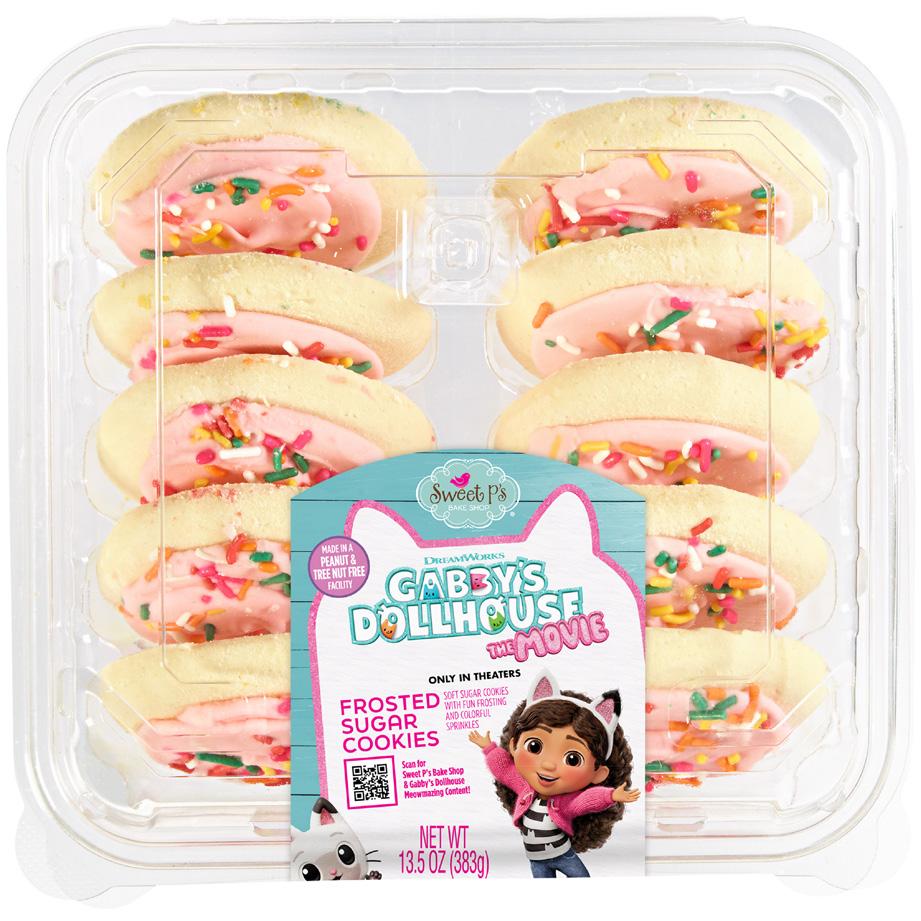
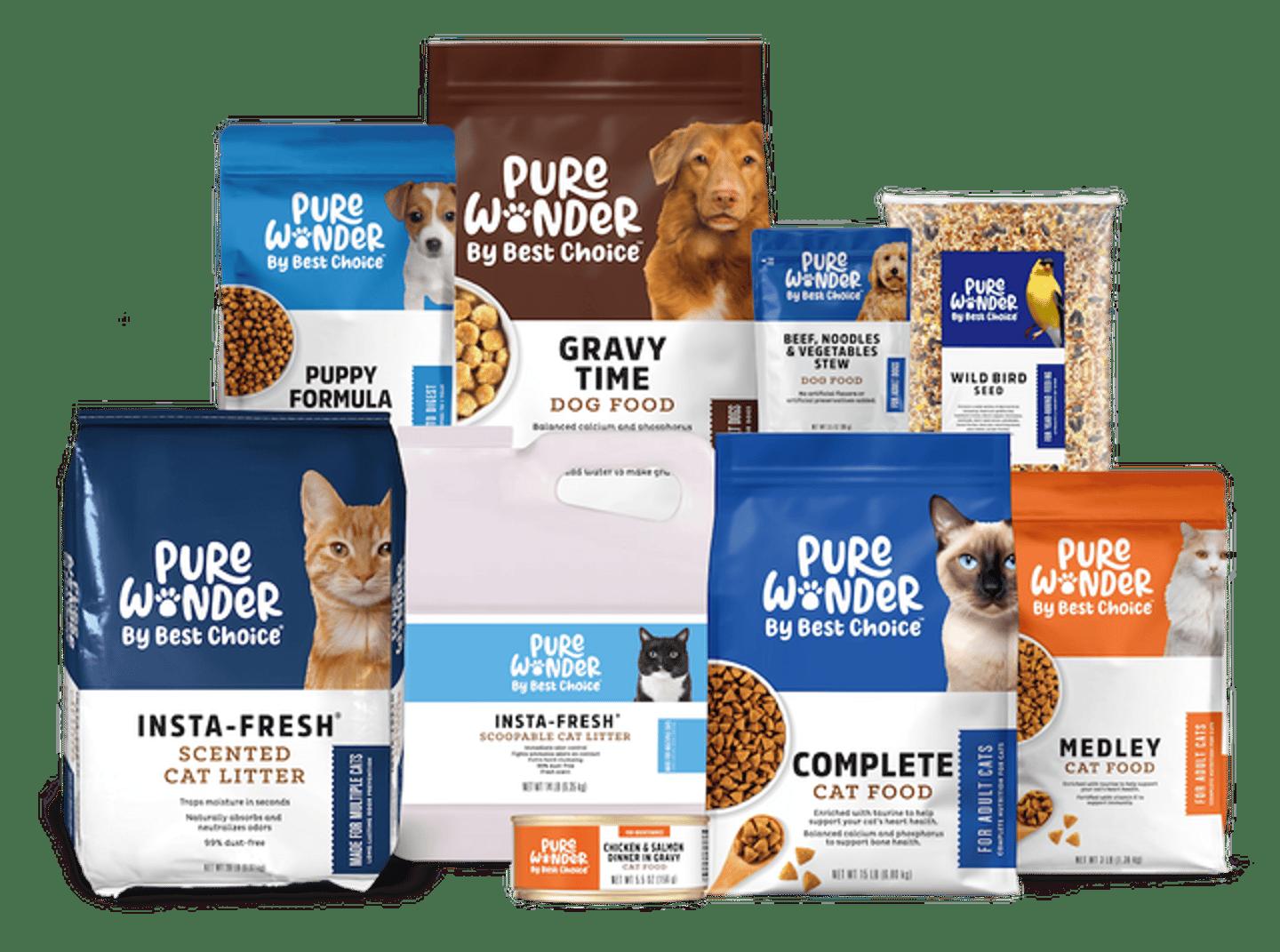
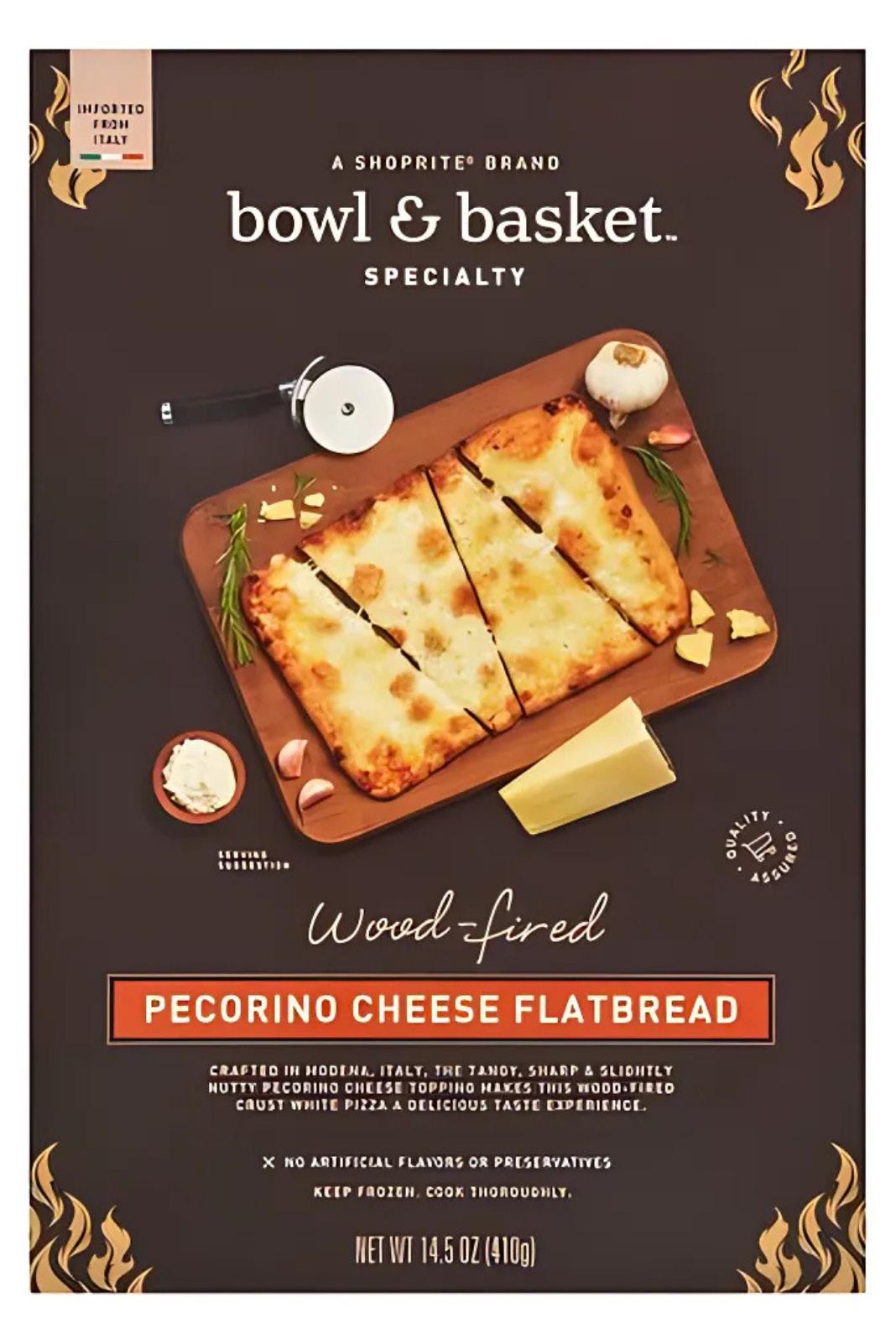
The role of the co-op has become even more important as we can put together strong private brand programs for independent grocers and help overcome the increased minimums set by suppliers. This is also important now as we work to deal with tighter supplies and tariffs.”
— Emily Detwiler, Associated Wholesale Grocers

also allows the brand to be much more innovative, because you need scale to experiment with your suppliers.”
Similar to Topco, AWG and Wakefern have also evolved their respective product development efforts in recent years to meet the growing consumer demand for private label products that are of higher quality and offer enhanced features and benefits. The strengthening relationships between co-ops and their members are also providing cooperatives with greater insights into what shoppers in different parts of the United States want from products in terms of quality and price.
Ofri notes that the family-owned supermarket banners that work with Wakefern hear directly from shoppers about products, packaging, sustainability, and new flavors. That information is then passed to Wakefern, which allows Ofri and her team to take the voice of the consumer to the next level.
“We leverage our deep understanding of shoppers’ needs to innovate and develop on-trend products through our private label brands, Bowl & Basket, Wholesome Pantry, and Paperbird,” she says.
With insights from shoppers as part of its arsenal, Wakefern’s product developers also find inspiration for new products at trade events in the United States and abroad. For example, a recent trip to Italy served to inspire her team to develop a line of refrigerated pastas, pizzas, and wood-fired flatbreads that include the Bowl & Basket Specialty Wood-Fired Pecorino Cheese Flatbread.
Before those products roll out broadly, however, Wakefern seeks input from customers.
“We want to see which recipes hit the spot, and [we] listen to suggestions to develop products they are looking for,” Ofri observes.
As cooperatives have ramped up their product development efforts in response to growing consumer demand, they’ve also expanded their marketing efforts, which include developing promotional materials that highlight their own brands and the features and benefits of new products.
According to Detwiler, AWG has a team dedicated to developing marketing success kits that include several tools, among them social media copy, recipes, and blog posts. The kits are designed to allow its retail members to easily implement this information across their social media accounts and websites. AWG’s team will also assist with such in-store marketing efforts as grocers hosting product demonstrations.
“Many retailers may not be able to execute [marketing programs] on their own,” she says. “Our in-house team works to keep things as cost-effective as possible for our retailers while making sure they have access to the promotional items they need.”
Topco’s marketing strategy has seen the company work to raise the profile of its own brands through sponsorships of NASCAR race cars, major events in Nashville like the city’s New Year’s Eve and Fourth of July celebrations, and working with the Tennis Channel on its coverage of the annual Cincinnati Open tournament.
Perhaps the most notable partnership for Topco is with DreamWorks and its “Gabby’s Dollhouse” animated series. The co-op’s Sweet P’s Bake Shop in-store bakery brand has had a multi-year partnership with “Gabby’s Dollhouse” on a back-to-school promotion, allowing youngsters to interact with the popular TV show.
The partnership includes the “Gabby’s Dollhouse” Meowmazing Road Trip Tour this year, which allows families to meet the Gabby costume character and get a photo.
“We were able to go into smaller markets that otherwise would not have had the opportunity to meet Gabby,” Skoda notes. “We had crowds lining up around the block to come and see her. This has a big impact on those communities but also provides a significant lift in product sales.”
While major events such as the COVID-19 pandemic and inflation have provided a boost to private label product sales, most observ-
When product sales volumes increase, we can negotiate even better terms with our suppliers. This often means we can pass those savings along to consumers by offering more affordable, high-quality products. It’s a win-win cycle that helps us grow and better serve our communities.”
— Pam Ofri, Wakefern

ers feel that there’s additional runway for own brands to grow as more consumers seek quality products that offer a good value.
“We have a significant opportunity to develop products that align with the needs, preferences, and cultural backgrounds of the communities we serve,” Ofri says. “Rather than offering a uniform selection across all international aisles in our stores, our focus is on creating a curated assortment that reflects each neighborhood.”
Noting the evolution of private label over the past several years, she notes that Wakefern is not only developing products that are national-brand equivalents, but also driving innovation to attract customers to stores.
“This is a huge opportunity for us,” Ofri adds. “We need to emphasize sustainability and chemical-free options to offer distinctive products on the shelf.”
Topco’s Skoda believes that there’s an opportunity for its members to further educate shoppers about the private label products on the shelf, and the benefits that those items offer in terms of quality and value. The advantage that regionals and independents have with this endeavor over national retailers is the strong connections to their communities and the high level of trust they have built with their shoppers over the years.
AWG’s Detwiler feels that the changing retail landscape will lead to more independent retailers linking with cooperatives to take advantage of their various programs.
“I see our private brand portfolio continuing to grow,” she says. “This is one of the advantages of being a member of AWG, as retailers will have access to even more private-brand opportunities that offer shoppers great-quality products at a good value.”
Beyond product development and marketing, Detwiler notes that AWG also provides smaller retailers with services that help longtime retailers to retire or sell their business.
“It’s not easy being an independent retailer today,” she points out. “One of the benefits of being a member of a co-op is that we provide assistance when someone is ready to move on and find a new owner for their business.”
By Greg Sleter
Each year, the retail industry is a dynamic arena of competition, innovation, and strategic shifts. While some large national chains remain dominant, others are making bold moves as they grow and navigate significant challenges that could reshape their businesses.
With Store Brands 2026 Retailers to Watch, the key theme with the 10 retailers selected is not just growth, but strategic transformation. The retailers selected are not just opening new stores; they are re-evaluating their entire business models. They are also leveraging their private label assortments as part of their individual growth strategies, using their own brands to build customer trust and stand out in a crowded market.
The following profiles take a closer look at these 10 retailers, highlighting the pivotal role private label will play in their success in the year ahead.

In the grocery world, few retailers have been as disruptive as Aldi. The German-based discounter has built its U.S presence on a simple, low-cost model, with private label products at the heart of its business. As the calendar turns to 2026, Aldi is a Retailer to Watch not just for its continued growth, but for a strategic shift in its brand identity that will define its future in the U.S. market.
The company is in the midst of an aggressive expansion plan, opening more than 225 stores in 2025 alone. This includes a
strategic push into new markets and the conversion of select WinnDixie and Harveys Supermarket locations acquired in late 2023.
This rapid physical expansion, which will bring its total store count to around 2,600 by the end of 2025, has made it the thirdlargest supermarket chain in the U.S. by store count. This growth is a testament to the fact that its value proposition, with around 90% of its products being private label, continues to resonate with price-conscious consumers.
The biggest story for the coming year, however, is a massive overhaul of its private label strategy. In late 2025, Aldi announced its largest packaging refresh to date, consolidating its numerous private brands under a unified “Aldi” brand. While popular names like Clancy’s and Simply Nature will remain, their packaging will now prominently feature the “An Aldi Original” tagline, with many other labels being replaced entirely with the Aldi name. This move is a direct response to customer feedback and is aimed at creating a stronger, more recognizable brand identity.
This strategic pivot is not without risk. While it capitalizes on the deep loyalty and trust customers have for the Aldi name itself, it moves away from the multi-brand strategy that has served it well for decades. The success of this rebrand will be a key indicator for 2026.
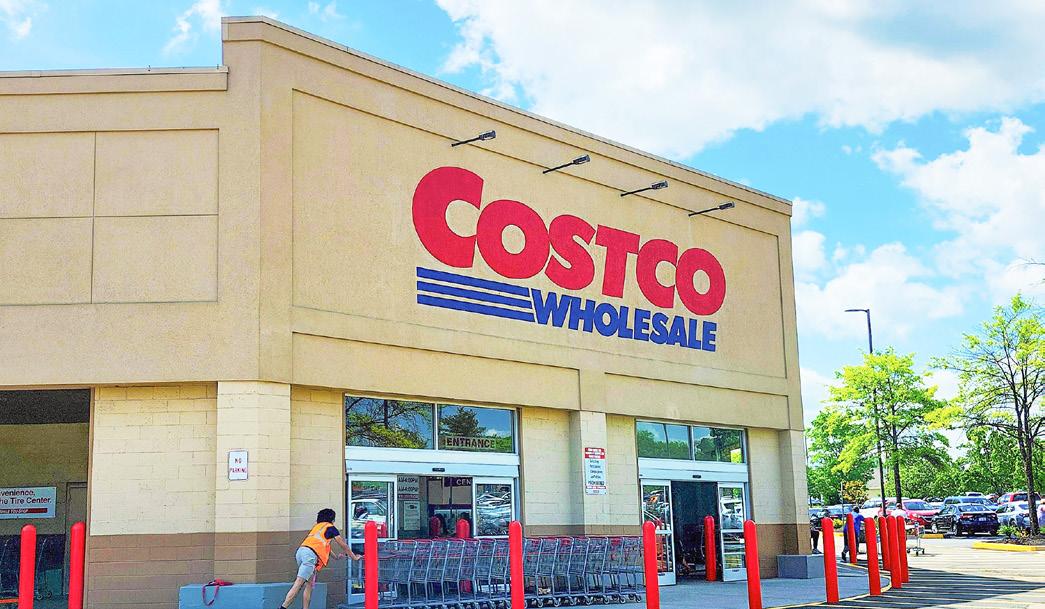
Costco closed out its fiscal year 2025 with sales topping the quarterof-a-trillion dollar mark, with its growth driven in part by a loyal customer base and an ever-expanding private label assortment.
As a Store Brands Retailer to Watch in 2026, its Kirkland Signature brand enters year 31 as a retail powerhouse with annual sales of around $86 billion. This performance isn’t just about offering a cheaper alternative; it’s about leveraging the brand’s reputation for quality to gain consumer trust and loyalty. Costco’s approach of having a single, high-quality own brand contrasts with other retailers that use a tiered or multi-brand strategy, and it’s a formula that has continued to work year after year.
As the company enters 2026, it is doing so from a position of strength. Costco’s financial results for fiscal year 2025 were strong, with net sales increasing more than 8% to almost $270 billion. The company also announced plans to accelerate its physical footprint, with 35 new warehouses slated to open in the new fiscal year ending in August 2026. This expansion, both domestically and internationally, presents a significant opportunity for the Kirkland
Signature brand to grow its presence and reach new customers.
For 2026, the key question for Costco and its Kirkland Signature brand will be how it maintains its momentum. Can it continue to innovate and expand its own brands in new categories without diluting the quality that customers have come to expect? As consumers remain price-conscious, will Kirkland Signature’s reputation for value and quality continue to be a powerful draw? These factors, coupled with the company’s aggressive expansion plans, make Costco a must-watch retailer in the year ahead.

CVS is a Retailer to Watch in 2026 because of its ongoing shift from a traditional drugstore chain to a comprehensive healthcare company. This strategic evolution, marked by a realigning of its physical footprint and a major rebrand of its private label products, will be a defining story in the coming year.
The drug store chain is in the process of a significant restructuring, closing hundreds of underperforming stores since 2022 to optimize its retail footprint.
The company is currently in the midst of a major packaging redesign for its own brand products. This initiative, which began in mid-2025 and is expected to be fully rolled out in 2026, aims to simplify the shopping experience.
The new packaging will feature a clearer design, making it easier for customers to identify product benefits and key features. The company also announced plans to introduce new brands and expand its portfolio in the health and beauty categories in 2025, a move that will further differentiate its offerings.
As CVS focuses on its healthcare services, its private brands will be crucial for maintaining profitability in the front of the store. By strengthening its own brand portfolio, CVS can increase margins and provide a value-driven alternative to national brands. This strategic emphasis on private label is a key part of its plan to compete with other retailers and online pharmacies.
In the fiercely competitive U.S. grocery market, H-E-B has long been an anomaly. A privately held, Texas-based powerhouse, it consistently outpaces national chains in customer loyalty and market share. As we look to 2026, H-E-B is a Retailer to Watch not because it’s a struggling underdog, but because its calculated expansion and

unwavering focus on private label are poised to shake up a highlycontested grocery landscape in the Lone Star State.
H-E-B’s private label program is a core pillar of its success. Its “Own Brands” have become synonymous with quality and value, a rare combination that has cultivated a loyal following among shoppers. This success is not accidental. H-E-B has a tiered own brand strategy, with its premium H-E-B brand often matching or exceeding the quality of national brands, while its Hill Country Fare brand provides a value-focused option.
This approach has led to a significant portion of sales coming from private label products, with profit margins that are significantly higher than national brands.
In 2026, H-E-B’s aggressive expansion into North Texas, one of the most competitive grocery markets in the country, will be worth watching. For years, H-E-B’s presence was concentrated in other parts of the state, but in 2025, it doubled down on its North Texas push. The company opened several new stores and distribution hubs, a move that directly challenges long-established players like Kroger and Walmart. This expansion is a significant financial commitment and a strategic wager that H-E-B’s unique blend of private label innovation, community connection, and exceptional customer experience will be enough to win over a new wave of shoppers.
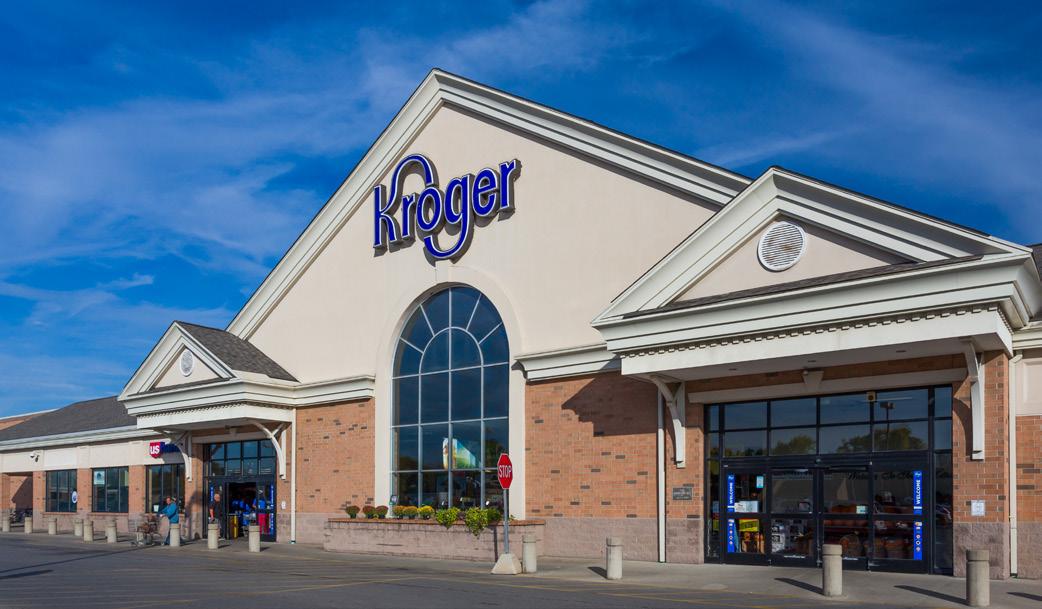
Kroger is facing a pivotal year in 2026. After a tumultuous 2025 marked by the official collapse of its proposed merger with Albertsons and a series of strategic realignments, the company is set
to embark on a new chapter. These factors make Kroger a Retailer to Watch in the coming year.
The biggest story for Kroger in 2026 is the aftermath of the failed Albertsons merger. The deal’s termination in December 2024 has forced Kroger to pivot its growth strategy away from large-scale consolidation and toward internal efficiencies and organic expansion. In 2025, Kroger announced plans to close approximately 60 underperforming stores by the end of 2026, a move aimed at boosting profitability and reinvesting savings into the customer experience.
Kroger’s renewed focus on its “Our Brands” private label portfolio is central to this strategy. The company’s own brands are a major profit driver, generating more than $30 billion in sales in recent years. With a diverse portfolio, Kroger has a proven model for attracting and retaining customers across various price points. In 2026, private label will continue to be a focus, and with Ann Reed, its new group vice president of Our Brands, now in charge, Kroger’s next steps within its own brand assortment will be closely watched.
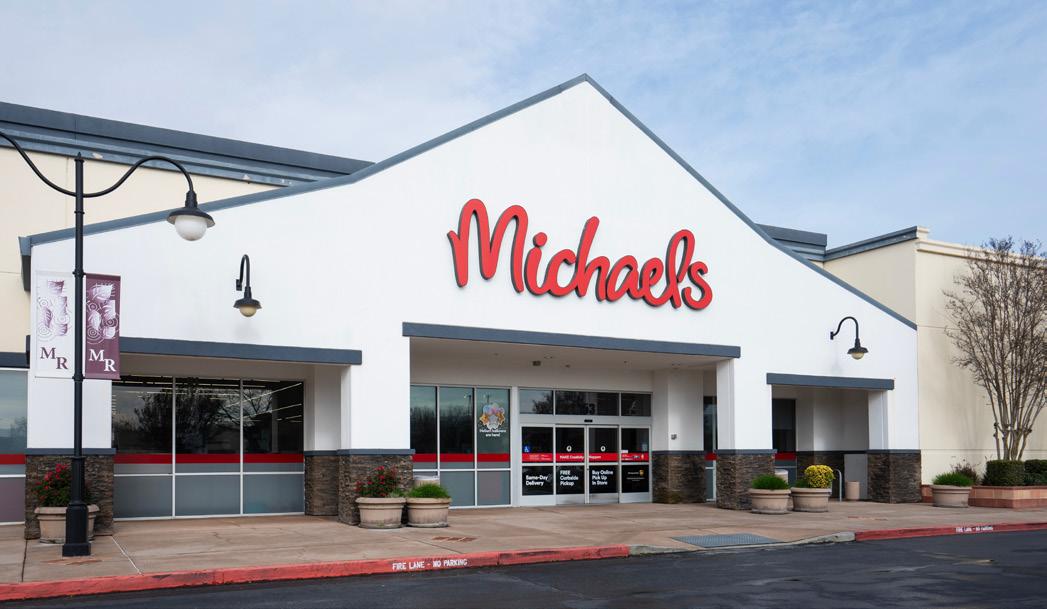
Michaels is in the midst of a transformative year that is set to redefine its business for 2026 and beyond. While the retailer has a long history of serving the creative community, its recent strategic moves to capitalize on the financial troubles of its rivals make it a Retailer to Watch in the coming year.
The biggest story of 2025 for Michaels was its strategic acquisitions and expansion into new categories. Following the bankruptcy of both Joann and Party City, Michaels seized on the opportunity. In June, the company acquired the intellectual property and private labels of Joann, which set the stage for a dramatic in-store transformation.
By late September, Michaels had rolled out “The Knit & Sew Shop” that features co-branded signage and an expanded assortment of threads, yarn, and fabric. This move not only filled a void in the market but also allowed Michaels to directly absorb Joann’s loyal customer base.
Simultaneously, Michaels expanded its party supply offerings with “The Party Shop,” adding 700 new products and dedicated balloon bars in its stores. This initiative capitalizes on the closure of Party City, positioning Michaels as a one-stop shop for both creative projects and celebratory needs.
Private label has always been a strength for Michaels, and the company’s recent moves have only strengthened this focus. By acquiring Joann’s private brands, Michaels is now able to leverage established names and a broader product portfolio to drive sales and customer loyalty.
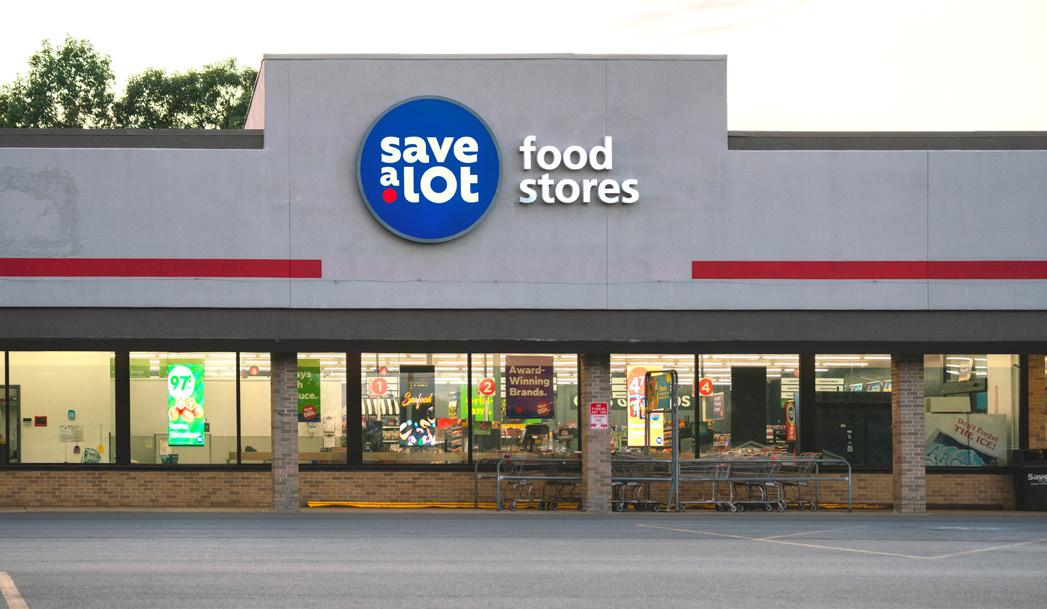
In the volatile world of discount grocery, Save A Lot is a name that has often flown under the radar. Yet, as the calendar turns to 2026, the company is a Retailer to Watch, following a year of strategic realignments and digital innovation.
A key part of this strategy was the launch of its first-ever loyalty program and app in late 2024. This initiative is all about leveraging data. The company is working to gather consumer information to drive personalized offers and promotions, aiming to boost customer engagement and loyalty.
Beyond expanding its digital toolbox, private label remains a vital component of Save A Lot’s business model, accounting for a majority of its sales. In 2025, the company reaffirmed its commitment to this segment by announcing plans to introduce more than 100 new own brand items. This expansion is designed to maintain its value proposition while appealing to evolving consumer preferences. As shoppers remain price-conscious, the success of these new private label products will be critical in driving sales and setting Save A Lot apart from its competition.
Looking ahead to 2026, Save A Lot faces a mix of opportunities and challenges. Its new CEO, Bill Mayo, promoted in August 2025, is focused on an ambitious expansion plan that aims to triple the company’s store count in the coming years.
A year after being named Store Brands Retailer of the Year, Sprouts Farmers Market remains a shining star in the grocery industry, continuing to expand store count while also growing its assortment of private label products.
During 2025, the specialty grocer has continued to carve out a profitable niche, and its strategy over the last year has set the stage for 2026, making the Phoenix-based company a Retailer to Watch in the coming year.
Sprouts’ financial performance in 2025 has been strong, with net sales and comparable store sales seeing double-digit growth.
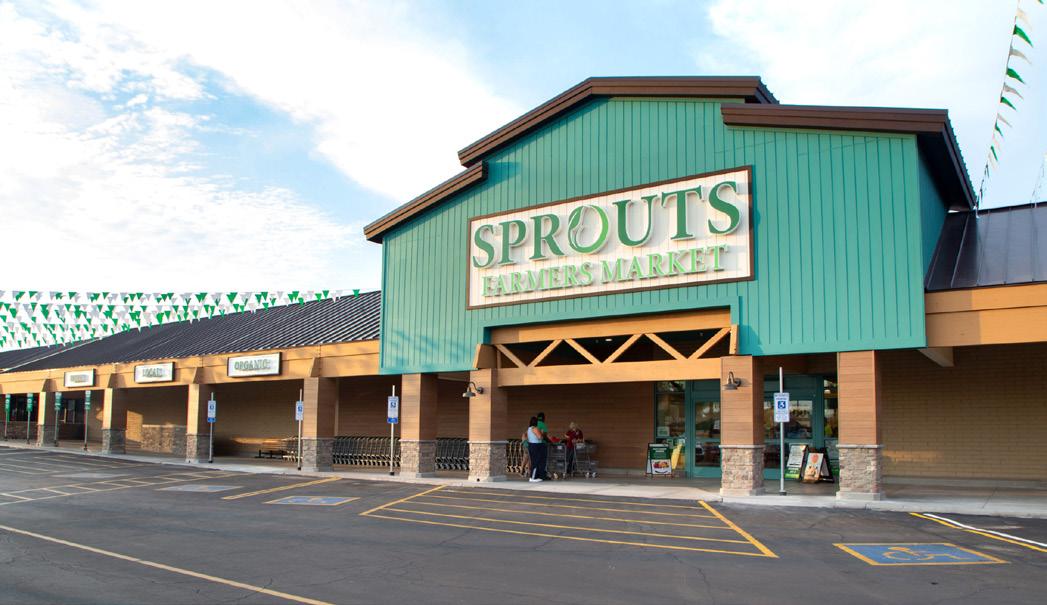
The company has continued its aggressive expansion plan, opening new stores in existing and new markets. This physical growth is a key part of the story, with a pipeline of more than 130 approved locations and plans to expand into regions such as the Northeast and Midwest.
Sprouts has been focused on its own brands, and the grocer’s private label offerings now account for around a quarter of total sales. This is a significant increase and demonstrates a continued commitment to developing unique, attribute-driven products that resonate with its health-conscious customer base.
Looking ahead to 2026, Sprouts faces a mix of opportunities and challenges.
The primary challenge for Sprouts will be maintaining its differentiated position in an increasingly crowded market. With more traditional supermarkets expanding their own natural and organic offerings, Sprouts must continue to innovate with its own brands and enhance the customer experience to justify its premium pricing.
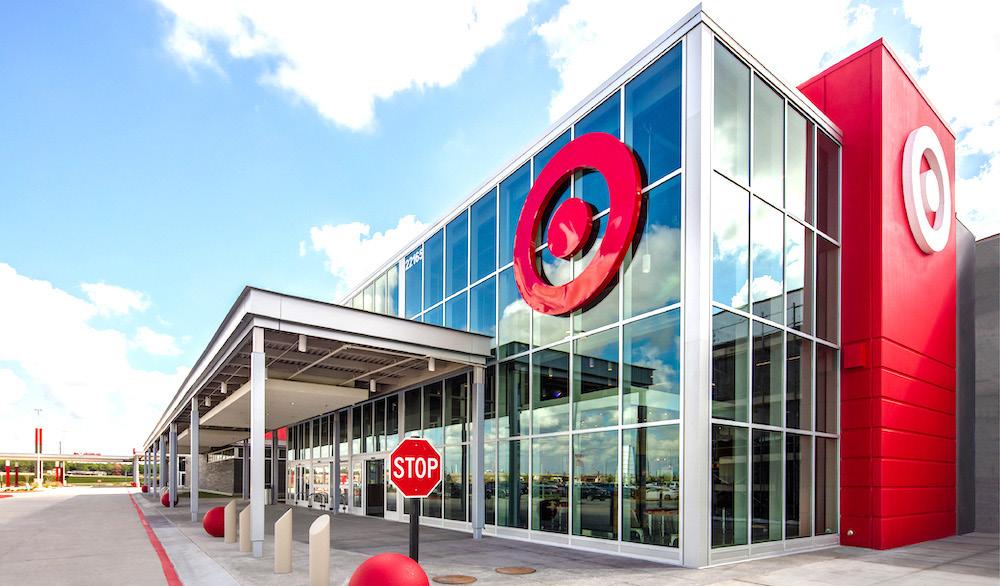
In a retail landscape defined by shifting consumer habits and economic uncertainty, Target is a Retailer to Watch in 2026, not for what it’s doing right, but for how it plans to overcome its recent struggles. After a challenging 2025, which saw declining comparable sales and a drop in net income, the company is placing a major bet on its private label business to drive a turnaround.
Target’s private label portfolio is already a retail powerhouse, boasting more than $30 billion in annual revenue. The Good &
Gather food brand alone is on track to become Target’s first private label to exceed $4 billion in sales.
As part of a new strategic plan to drive more than $15 billion in sales by 2030, Target continues to boost its private label grocery assortment. This includes Good & Gather Collabs, a partnership with well-known chefs and tastemakers to create new products. The initiative, starting with James Beard Award-winning chefs Ann Kim and Rodney Scott, aims to create a sense of everyday discovery and delight for shoppers.
While its private label assortment has been a silver lining for Target, the retailer has its challenges. In 2025, Target faced declining store traffic and a drop in customer satisfaction scores. The company’s digital sales growth has also been underwhelming compared to rivals such as Amazon and Walmart. To combat this, Target plans to heavily invest in its supply chain, technology, and in-store experience, with a focus on using AI to improve personalization and optimize inventory.
As its CEO, Brian Cornell, prepares to step down in early 2026, the company will face a leadership transition at a pivotal moment. New CEO Michael Fiddelke will have the task of navigating ongoing macroeconomic pressures and an increasingly competitive market.
Yesway has carved out a name for itself with a rapid growth trajectory and a strategic focus on acquisitions. As 2026 approaches, the company is a Store Brands Retailer to Watch due to its ambitious plans for a public offering and a sharp realignment of its store portfolio.
The biggest story for Yesway in 2025 has been the renewed buzz around a potential Initial Public Offering (IPO). After a previous attempt was withdrawn in 2022 due to market conditions, the company is reportedly working with major investment banks to list its stock. A successful IPO could raise hundreds of millions of dollars, providing Yesway with the capital needed to fuel its aggressive expansion plans.
At the heart of Yesway’s business model is its robust private label offering. The company has skillfully leveraged its own brands, including its popular line of Yesway private-label snacks and, most notably, the iconic Allsup’s World Famous Burrito, to drive customer loyalty and profitability.
These products are a key differentiator in a crowded market, providing a high-quality, value-driven option that customers can’t find anywhere else. The company’s expansion strategy is built in part on the strength of these brands, with new large-format stores designed to prominently feature the food service and private label assortment.
For 2026, the company faces a unique set of challenges and opportunities. While it has been building new Allsup’s stores in the Southwest, it has also been quietly divesting from other markets.
The success of this move will hinge on whether the reinvested capital can drive even greater returns in its core markets of Texas and New Mexico.